- Account Settings
- Home Services
- Home Security
- Pest Control
- Living Room
- Other Rooms

Home Improvement
- Cost Guides
- Floor Plans
Housekeeping
- Cleaning Tips
- Organization
- Popular Brands
- Sizes & Dimensions
Smart Living
- Dangerous Areas
- Safest Areas
- Most Affordable Areas
Top stories

Water Heater Keeps Tripping Breaker? (Possible Causes & Fixes)

Very few people volunteer to take cold showers. So when the water goes cold AND your power goes, that’s a double whammy. You reset your circuit breaker, but it goes out again, and you’re not sure what to do about it.
Having to battle between hot water and working electricity can be frustrating. There could be a power supply issue between your electric water heater and your circuit breaker. Pinpointing the exact cause will both prevent an electrical fire and preserve the hot water supply.
You should never begin repairing a water heater before turning off its power supply. However, it’s essential to check the appliance’s power flow before disassembling any parts. A multimeter is a wise investment and a crucial tool in troubleshooting water heater and circuit breaker issues.
Do You Need Water Heater Repair Services?
Get free, zero-commitment quotes from pro contractors near you.

How Does a Water Heater Work?
The water heater provides hot water to the entire household for bathing and household cleaning. It does this by siphoning water through a dip tube and heating it inside the water tank. Once heated, the water rises and moves through the heat-out pipe into the home’s water sources.
All water heaters are equipped with heating elements, thermostats, relief valves, drain valves, insulation, and anode rods. The only difference between the gas and electric water heaters is the power source: it depends on electric power. This is the only instance where water and electricity DO mix.
Why Is My Water Heater Tripping the Breaker?
Electric water heaters use a strong electrical voltage to operate. Therefore, it will often have its own dedicated circuit on the electrical system. Sometimes this power draw can be too much for the breaker, and the system will shut off.
There can be many reasons (or no reason at all) a water heater might trip the breaker. If the breaker continues to shut down after resetting several times, leave the breaker off and investigate. Also, don’t install a higher rated breaker to override the system, as this increases the potential of an electrical fire.
How Do I Find Out What’s Causing the Circuit Break?
There are several common causes for a water heater to trip the circuit breaker. In order to pinpoint them, you’ll need to systematically check all electrical components to see if they are fully functioning. Use the multimeter to measure the proper voltage and electrical flow of each component before attempting a repair.
The most common causes center around three areas: corrupted or damaged parts, damaged or ineffective wiring, and water leaks. Identifying the cause will direct how you approach and correct the problem.
Bad Heating Element
Water heaters have heating elements located at the top and the bottom of the water tank. They are usually made of metal and housed in a protective casing to prevent corrosion. Over time, the casing can split or crack and expose the metal directly to the water supply.
This can short circuit or burn out the element itself, either underheating or overheating the water. You’ll either notice a drop in the water temperature or the breaker or high limit switch will shut off. You should test the heating element’s electrical flow to identify this as the cause.
Make sure the breaker to the water heater is turned off, then loosen the wires from the heating element. Use the multimeter to test the points where the wires attach to the element. A 120-volt reading may mean a cracked casing or corrosion, while zero volts means the element has shorted.
Bad Thermostat
The heater alternates between the two elements to produce hot water for in-home usage. Each element has a thermostat built in to ensure only one is on at any given time. A functioning thermostat keeps the system running properly and the water temperature at a maximum of 180 degrees.
If a thermostat goes bad, the element may fail to shut off and possibly run concurrently with the other element. This causes the heater to exceed the 180-degree temperature and draw more electricity than required. This will subsequently overload the circuit breaker and trip the limit switch, breaker, or both.
You can check the thermostats with the same process used to check the heater itself. After safely disconnecting the power and wiring, use the multimeter to check the thermostat for resistance. Bad thermostats need replacing, though most recommend replacing the heating elements at the same time for best results.
Water Leaks
For the most part, the water heater components prevent water from entering the electrical system. Sometimes, a gasket can fail and open the possibility of water reaching the electrical system and tripping the breaker. This is a very dangerous scenario that could lead to serious electrical shock or fire.
Water connecting with the electrical system usually trips the main breaker automatically. If it doesn’t, shut the breaker off immediately and locate the source of the leak. Once you repair the leak, you can restart the breaker and make sure the water heater is operational.
Internal Wiring
If the heating elements and thermostats check out, there might be an issue with the heater’s internal wiring. You’ll have to check the heater’s wiring for burned connections, damaged wire, or signs of electrical arcs. You will likely smell smoke before you find any visual damage.
As always, make sure to turn off the power to the water heater before you begin troubleshooting. Open the outside panel to locate the water heater’s connection to the house’s wiring. Find and replace any damaged wiring or connectors before restarting the water heater.
External Wiring or Electrical Problem
You’ve checked for water leaks, tested the heating elements and the thermostats, and checked the internal wiring. All of those parts check out fine, but the breaking is still tripping. The issue has now moved from a plumbing problem to an electrical problem.
You’ll likely need an electrician in the long run, but there are some things you can check to diagnose the problem. Check the wiring on the line for broken or loose wires. There could also be a bad connection in the panel, or the breaker itself is worn.
Any of the above issues can result in replacing part or all of the breaker. Be sure to use the same energy rating when replacing the breaker. A higher-rated breaker than the current system will allow more current to flow through and potentially overheat or catch fire.
Water Heater Maintenance
Proper maintenance of the water heater can prolong its life and delay the need for repairs. There are some simple tasks the homeowner can do that can save time and money. Regular maintenance can help your water heater run more efficiently and extend the heater’s life.
Be sure to set the water heater’s thermostat at a safe temperature, preferably 120 degrees for economy and personal safety. Likewise, sediment can settle in the tank and cause the heater to stop working too soon. It’s a good rule of thumb to flush the tank at least once a year.
The anode rod is a crucial part of the water heater, taking on the rust to keep the tank clean. Check and change the rod if you notice an abundance of rust. Finally, test your pressure valve every so often; be sure the water cools first before opening the valve.
Related Questions
When do i need to call the plumber.
As a new water heater is a significant expense, it’s understandable if a homeowner wants to DIY to reduce costs. Some diagnostic measures and part replacements can be easy to do with the right equipment. However, knowing what needs doing and being able to do it correctly are two different things. You should certainly call a plumber for any repairs outside your scope of expertise or anything they could complete faster. For instance, a homeowner can check voltage and resistance and replace a heating element with little effort. Conversely, replacing a dip tube could be problematic if you’re unskilled at using a blowtorch.Obviously, any repair that requires the presence of more than one person should fall to the plumber. Issues involving the breaker and circuitry will need an electrician’s attention. Ultimately, the homeowner’s comfort level will determine whether or not to call in the professionals.
How do I choose the best water heater?
Choosing the “best” water heater will depend on the size of your home, household, and usage needs. You should aim to get a water heater that is energy efficient , preferably with an Energy Star rating of 3.48 or lower. Between lifetime energy costs and rebate incentives, getting an Energy Star certified heater is a smart, economical choice.Another consideration is the type of water heater. Although the tank style is the most common and the least expensive, tankless units are becoming more popular. Tankless heaters can produce hot water more quickly but may not be cost-effective.Two important factors in choosing a water heater are its necessary water use and its first-hour rating (FHR). Necessary water use estimates how many gallons each household member will need to use over time. The FHR measures hot water produced in the first hour and reflects its efficiency and peak usage capacity.

Stacy Randall is a wife, mother, and freelance writer from NOLA that has always had a love for DIY projects, home organization, and making spaces beautiful. Together with her husband, she has been spending the last several years lovingly renovating her grandparent's former home, making it their own and learning a lot about life along the way.
More by Stacy Randall

How Do I Know If My Molasses Has Gone Bad?
Popular articles.

When Should You Start Packing For A Move?

How To Keep Your Dog In The Yard

What Keeps Eating My Bougainvillea?

How To Set Up A Gaming Room

You may also be interested in
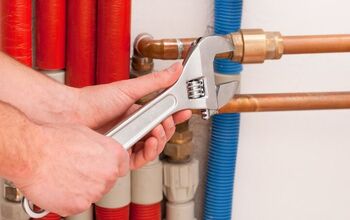
Water Heater Leaking From Drain Pipe? (Possible Causes & Fixes)
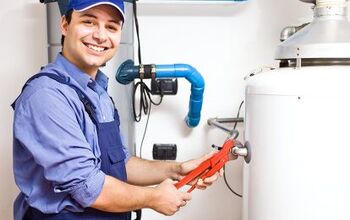
Hot Water Heater Not Filling Up? (Possible Causes & Fixes)
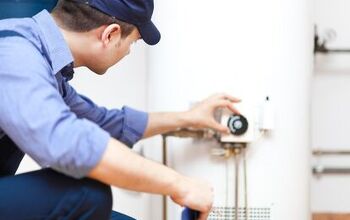
Water Heater Keeps Running? (Possible Causes & Fixes)
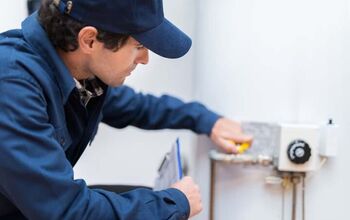
Water Heater Making Hissing Sounds? (Possible Causes & Fixes)
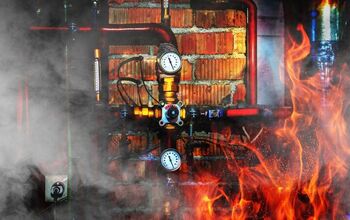
Why Is My Water Heater Overheating? (Possible Causes & Fixes)
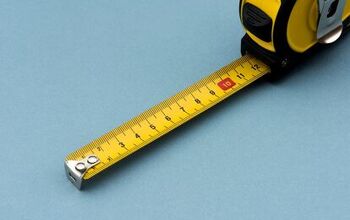
What Is The Black Diamond On A Measuring Tape For? (Find Out Now)

Standard Walk-In Shower Dimensions (with Photos)
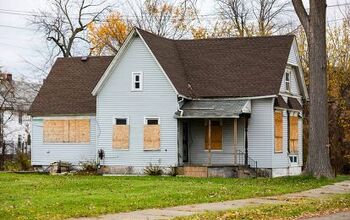
How To Report A House That Should Be Condemned (It's Super Easy!)

The 26 Best Video Doorbells Without A Subscription
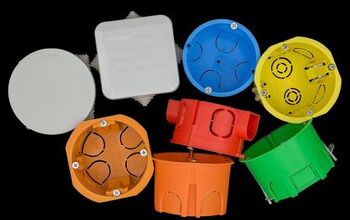
What Size Screws Are For An Electrical Box? (Find Out Now!)
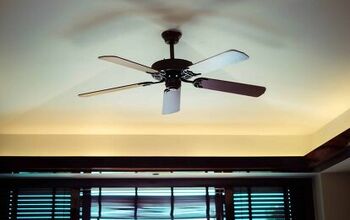
Ceiling Fan Turns On By Itself? (Here's What You Can Do)

Kenmore Washer Lid Won't Unlock? (We Have a Few Fixes)

What Are The Pros and Cons Of The Chinese Pistache Tree?

8 Types of Shower Drains (with Photos)

8 Types of Stone For Fireplaces (With Photos)
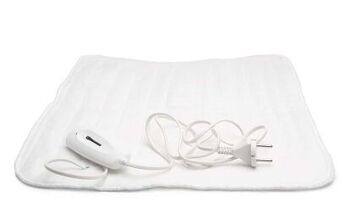
Heating Pad Flashing A Red Light While On High? (Do This!)

Kitchen Sink Dimensions and Guidelines (with Drawings)
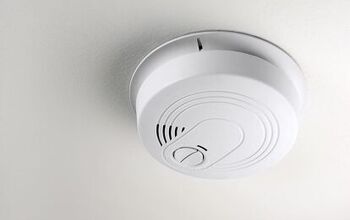
Why Is My Smoke Detector Blinking Red? (Find Out Now!)
Home » circuit breaker » water heater tripping breaker
Water Heater Keeps Tripping the Circuit Breaker: Issue Fixed.

Circuit breakers are designed to protect your circuits and appliances from overload, short circuits and faulty currents. If your water heater is tripping breaker , there may be a problem either with your water heater, the wiring system or your circuit breaker.
Water heaters use more energy than most appliances, and are required to be on a 30 amp dedicated circuit breaker in the electrical panel.
If your own is causing your circuit breaker to be tripping repeatedly, follow these steps to fix it.
Table of Contents
Possible reasons your water heater keeps tripping the circuit breaker
There are four major reasons your electric water heater is tripping your electrical circuit, these include:
Circuit overload
A water heater superposes be on a dedicated circuit. If the water heater is sharing the same circuit with other devices , it may result in circuit overload and thus trip the breaker .
Burnt-out heating element
Damaged heating elements are one of the major reasons your water heater trips a breaker.
The heating element is part of the water heater that heats the water. If it has damaged, it will cause the breaker to trip.
There are so many factors that can damage the heating element of a water heater, these include short circuits, mineral deposits on the element, rusting, physical damage and others.
When the water heater element is damaged, its resistance will decrease. This will increase the power consumption of the heater tank, and also result in tripping the breaker.
To determine if the heating element is bad, use a multimeter to check for any abnormal resistance readings.
If the reading varies from the rating of the heating element, then it is damaged.
In a few other cases, the casing of the heating element may break, exposing the electrical part of the element to the water in the tank.
This can lead to a short circuit and subsequent tripping of the limit switch or breaker.
Bad thermostat
A faulty thermostat can also cause your circuit breaker to trip. A thermostat is a part of the heater tank that controls water temperature.
Water heaters usually have a limit switch that prevents water from exceeding 180 degrees Fahrenheit. When the water gets too hot, the limit switch trips, preventing the water from getting hotter.
Most water heaters usually come with two thermostats and two heating elements, one for each other.
If the thermostat is faulty, it may not read accurately. This will allow the heating element to draw more power than rated until it overload and turn off the circuit breaker.
To check if the thermostat is bad, use a multimeter and test each of them. If you get a different reading from the two thermostats, one is probably bad.
The one with low resistance or current flow rate is probably bad and should be replaced.
Bad breaker or electrical wiring
A faulty breaker may also be the reason your breaker is tripping. Though very rare, the circuit breaker component may damage and cause your breaker to trip even below the current specified limit.
Bad wiring along the breaker and the heater tank can also trip your breaker. If there is a loose connection, partial contact or wrong connection along the circuit, it will cause a short-circuit and probably trip off your circuit.
In this case, the wiring system should be checked. You can also reset the breaker to see if that solves the problem.
If the breaker continues to trip after resetting, contact an electrician or a professional water heater serviceman to help you solve the problem.
Normally, it is important to always inspect your heater tank to ensure it is leak free. When there is a water leak, it may come in contact with the electrical components resulting to an electric shock or ground faults .
To avoid these hazards, it is advisable to always turn off your circuit breaker or power source and seek professional help.
Troubleshooting a water heater that keeps tripping your breaker requires checking the electrical connections, inspecting the heating element, the thermostat, checking for overload, and for water leak.
It is always advisable to seek the assistance of a professional plumber or electrician to help you and resolve the problem. Since fixing it yourself may even result in a bigger problem.
Related articles
- Electrical Safety: What You Need To Know Before Working On Your Home’s Wiring
- What is a Miniature Circuit Breaker (MCB)?
- What is an SF6 Circuit Breaker?
- 20-Amp Breaker From Square D Homeline: What You Need to Know.
- Causes of Power Surge and How to Prevent it.
About mariaelectricals
Hi, I am Emmanuel Nwankwo, a commercial electrician and the founder of mariaelectricals.com . I established this blog to share my decades of work experience in electrical installations and repairs.
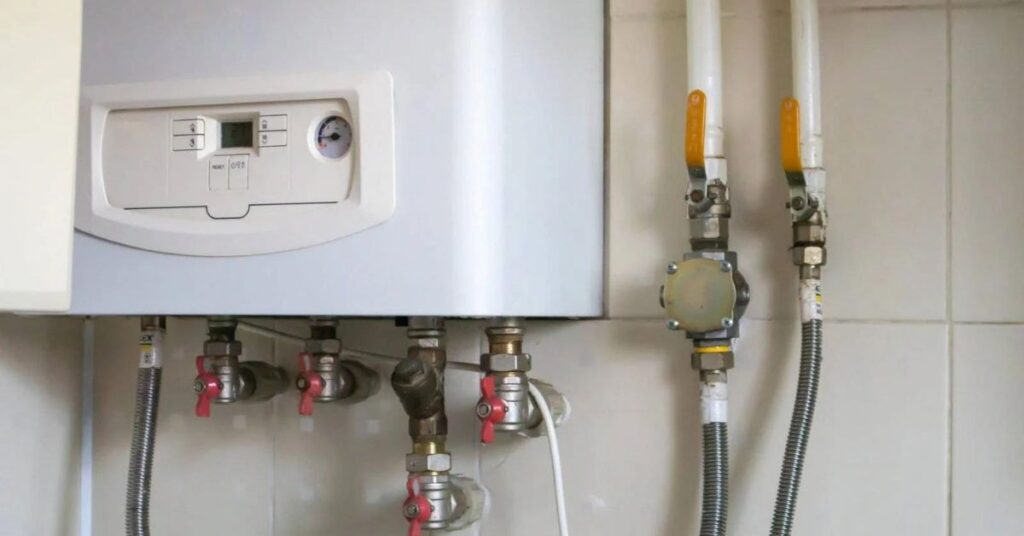
Why Water Heater Keeps Tripping Breaker: Causes and Troubleshooting
Water heaters that keep breaking down can be frustrating and inconvenient for homeowners. This guide will explore the question: “Why water heater keeps tripping breaker?” It is essential to understand how your water heater works and identify common causes of breaker trips so you can troubleshoot effectively and prevent disruptions altogether. Find out what causes electrical overload, faulty heating elements, and short circuits to maintain a steady hot water supply.
How a Water Heater Works
Water heaters quietly provide hot water for showers and other household tasks behind the scenes. Let’s look at its inner workings to understand why breaker trips might occur.
1. Basics of Operation
Essentially, a water heater heats and stores water for on-demand consumption. In this process, a heating element, typically powered by electricity or gas, is used to heat the fluid. When water flows into the tank, the heating element warms it to the desired temperature, ensuring hot water when needed.
2. The Heating Element and Thermostat
The heating element and thermostat are at the heart of this operation. The heating element warms the water, while the thermostat keeps it consistent and safe. These components work harmoniously to provide a reliable source of hot water throughout your home.
3. Introduction to Electrical Components
In the context of breaker trips, it’s crucial to understand the electrical components of a water heater. A dedicated circuit powers the heating element, and any disruption in this electrical system can lead to the confusion of a tripped breaker.
Why Water Heater Keeps Tripping Breaker
It’s frustrating when your water heater trips the breaker, but understanding the cause is the key to fixing it. Let’s look deeper at what’s causing your water heater to trip the breaker:
1. Electrical Overload
Electrical overload occurs when the electricity demand exceeds the capacity of the electrical circuit. It can happen if multiple high-powered appliances are running simultaneously. As a safety measure, the breaker trips to prevent overheating and potential fire hazards. You can solve this by redistributing appliances on the same circuit or upgrading your electrical panel.
2. Faulty Heating Element
The heating element is a crucial component responsible for warming the water in your heater. A malfunctioning heating element can lead to breaker trips. Uneven water temperature, strange noises, or a lack of hot water are all signs of trouble. You can fix this problem by testing and replacing your water heater’s heating element.
3. Short Circuit
Electrical short circuits happen when hot and neutral wires come into direct contact, creating a low-resistance path for electricity. It can result in a sudden surge of power, causing the breaker to trip. Identifying signs of a short circuit, such as burnt smells or visible damage to wires, is crucial. Replacing or repairing damaged wiring may be necessary to fix it quickly.
4. High Resistance in the Circuit
High resistance can impede the normal flow of electricity, causing heat and tripping the breaker. This issue often stems from corroded or damaged wiring. Recognizing the signs, such as dimmed lights when the water heater’s on, is essential. You might have to replace damaged wiring or upgrade to a more robust circuit to fix high resistance.
Troubleshooting starts with understanding these common causes.
Troubleshooting and Solutions
After identifying common causes of a water heater tripping the breaker, let’s explore practical troubleshooting steps and solutions.
Start by assessing the overall load on the circuit if your water heater is tripping the breaker. Consider redistributing high-powered appliances to different circuits or staggering their usage to prevent a simultaneous heavy draw. In some cases, upgrading your electrical panel is an excellent long-term solution.
Check the continuity of a potentially faulty heating element with a multimeter. If the multimeter indicates no continuity, the heating element is likely the culprit. The solution involves replacing the defective heating element with a new one. Ensure you follow the directions in your water heater’s manual when removing and replacing the heating element.
Identifying the signs of a short circuit is crucial to prevent the breaker from tripping. Inspect the wiring for visible damage, burnt smells, or charring. Additionally, check for loose connections. If you detect any issues, the solution involves repairing or replacing the damaged wiring and ensuring all connections are tight. You may need professional assistance if the problem persists.
Look for signs of high resistance, such as corroded or damaged wiring that looks discolored or frayed. To address this issue, replace any damaged wiring and make sure all connections are secure. It might be necessary to upgrade to a heavier gauge wire or install a dedicated circuit for a more permanent fix.
5. Professional Help
It’s best to seek the help of a licensed professional plumber specializing in water heaters if your troubleshooting efforts don’t resolve the issue. A professional can assess your water heater, identify the root cause, and implement the necessary repairs or replacements.
It is how you can fix your broken water heater in Dallas, Texas. The best thing you can do is to hire a professional plumber.
Read More: How to Research Your Water Heater Specialist
Prevention Tips
You must proactively prevent frequent breaker trips and ensure your water heater runs smoothly. Regular inspections are crucial in early identification of signs of wear, corrosion, or damage. During these checks, watch out for leaks, strange noises, and visual signs of electrical problems.
To prevent excessive wear on heating elements, ensure your thermostat setting is within the recommended safe and efficient range.
Periodically flushing the tank helps eliminate sediment buildup, enhancing your water heater’s overall efficiency and lifespan. Professional maintenance ensures a thorough inspection and cleaning of components, addressing potential problems before they escalate.
You’ve learned common causes, effective troubleshooting, and preventive measures for water heaters that trip the breaker. Regular maintenance, eyeing for signs of wear, and promptly addressing electrical issues can keep your hot water flowing.
Consult professionals if problems persist. A well-maintained water heater not only keeps you comfortable but also ensures its longevity. Keep your water heater safe, stay proactive, and enjoy the constant warmth.
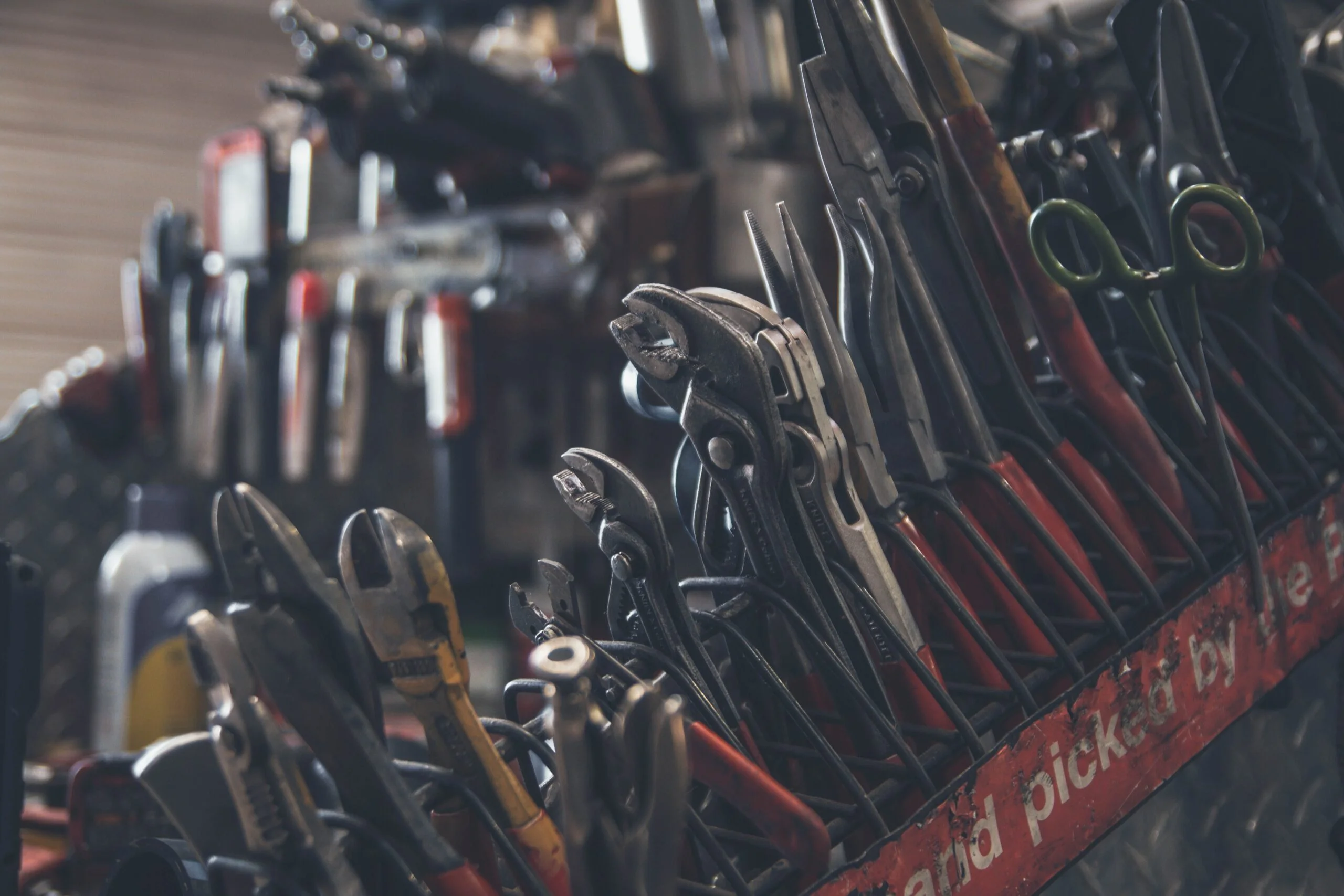
How to Avoid Being Overcharged for Your Plumbing Project

How to Avoid Getting Ripped Off on Your Air Conditioning Project
Leave a comment cancel reply.
Your email address will not be published. Required fields are marked *
Save my name, email, and website in this browser for the next time I comment.
Sign up for our newsletters
The best of Business news, in your inbox.
Electric Water Heater Keeps Tripping The Breaker – Why It Happens And What To Do

Does your electric water heater keep tripping the circuit breaker? Then you might well have some problems that need to be fixed urgently!
Electrical problems such as these can cause serious harm and damage, so they should be diagnosed and seen to as soon as possible.
Table of Contents
Finding The Problem
The first step to fixing any problem is finding it, of course! If your electric water heater keeps tripping the circuit breaker, then there are many possible reasons.
This, unfortunately, can mean that you’ll have to go through an exhaustive troubleshooting process – but even these steps can save you money in the long run!
Before you start doing anything at all, you should make sure to turn the power off at the circuit breaker. You need to do this because you’re running the risk of electric shock, or even electrocution if you don’t.
It really is that simple! Electrical problems can manifest in all sorts of ways, and you have no way of knowing what’s safe and what isn’t until you’ve located the problem.
Once you’ve safely turned off the power at the main circuit breaker of your home, you can start troubleshooting.
As there could be a large number of reasons why your electric water heater keeps tripping your circuit breaker, you’ll need to check things one at a time.
And remember, just because you’ve found one cause, it doesn’t necessarily mean that you’ve found them all.
Electrical problems in one component can cause issues elsewhere too. You’ll need to check everything thoroughly to be sure, even if you think you’ve found the fault.
Broken Heater
One of the most common things that can cause your electric water heater to repeatedly trip your circuit breaker is a fault within the heater itself.
The electric water heater is likely in use a lot of the time, and as such, is susceptible to wear over the years.
Also, heaters can be damaged, particularly during installation, as that’s when they are actually moved into place.
Construction work taking place around them can cause knocks and bumps which can cause problems with your heater.
Also, a water heater can start to fail simply because it is old. Even if it’s been well looked after, and used sensibly, there’s a point where a heater just gets too old to be able to be repaired.
Even if it can be fixed, it might well be more worth getting a replacement.
It’s only worth going for a repair if it makes economic sense to do so.
If the cost of a repair is more than the cost of a new heater of comparable specifications, then it’s a no-brainer – go for the new model rather than trying to breathe life into the old one.
And of course, a broken water heater could indicate issues elsewhere – don’t be fooled into thinking that you’ve fixed the problem without checking absolutely everything.
Broken Thermostat

The thermostat is an important part of your electric water heater. It’s the component that’s responsible for regulating the temperature of your electric water heater.
It’s also one of the most common causes for a faulty water heater that trips the circuit breaker.
The thermostat regulates the heat of the water for safety and usability reasons.
If it wasn’t there, the heater would run and run until the water would become far too hot to use safely. Boiling water could come from your taps, which can cause serious injury.
It could potentially be even more dangerous – if water starts to boil, then steam is produced.
Pressure can build up very quickly, which could turn your heating system into a bomb!
Luckily, the thermostat guards against this, keeping your water at a safe temperature, and limiting the amount of electricity used too.
However, a broken thermostat can lead to your circuit breaker tripping, and worse.
Your electric water heater likely actually has two thermostats if it has two heating elements.
Many electric water heaters are like this. Therefore, that’s two thermostats which could potentially have a fault.
You can test to see if your thermostats are faulty with a digital multimeter, if you’re confident working with electrics.
First of all, double check that you’ve turned all of the power off at the main circuit breaker. Then, locate the thermostats on the body of your electric water heater.
Disconnect any leads that are connected to these thermostats , and probe them with your digital multimeter for resistance.
When the thermostat is open, your digital multimeter should read 0 ohms. If it reads anything else, likely your thermostat is broken and will need to be replaced .
Broken Heating Element
Modern electric water heaters commonly have two heating elements. Unsurprisingly, it’s the job of these heating elements to heat the water!
If a heating element fails, it won’t be able to heat the water anymore. Not just that, but it may well cause your circuit breaker to trip.
There are many reasons why a heating element may fail. They may short circuit, or suffer physical damage.
Physical damage can often happen during installation, or if the heater gets moved for any reason.
Heating elements may also end up with mineral deposits from water on them, which can impede their heating ability and even cause them to fail completely.
Heating elements in electric water heaters can be replaced, but they often can’t be repaired. It’s better to think of them as disposable parts.
If it breaks, get rid of it and get a working one installed. It’ll save you a lot more hassle in the long run, compared to trying to keep an old, failing element going.
Unless you’re qualified, or really know what you’re doing, changing the heating element on your electric water heater isn’t something you should tackle yourself.
It’s not an easy job, especially if you make mistakes! You’re dealing with both water and electricity at the same time, so there’s no room for error.
Better off to spend the money on someone who knows what they’re doing, rather than risking a dangerous mistake happening.
Bad Internal Wiring
Sometimes the internal wiring of the electric heater itself can have problems. This can cause issues such as short circuits, a malfunctioning heater, and can of course also cause your circuit breaker to trip.
These faults can be extremely difficult to diagnose – often, they’re easiest diagnosed by eliminating everything else first.
If everything else seems to work, then the internal wiring of the electric water is a likely culprit.
If the internal wiring fails, often it’s simply most economical to replace the unit entirely.
If the faulty wiring is easily accessible and fixable by a professional, then that’s great – but if not, they may well recommend that you replace the unit entirely.
This can happen for a number of reasons. Sometimes, manufacturer defect is the cause. Othertimes, damage during installation can cause issues.
Whatever the cause, an internal wiring issue can be a very serious problem. At the very least, it can prevent your electric water heater from working at all – and can even pose a fire hazard.
Fixing the internal wiring of a boiler isn’t something that anyone but a trained professional should even think about.
The risks if something goes wrong are simply too serious for it to be safe for anyone but a professional to deal with.
The safest thing is to turn the power off, and leave it off until somebody who knows what they’re doing has a look at the problem.
Leaking Water

Water and electricity are dangerous companions, and a leak can cause havoc when mixed with electric circuits.
Water from loose or damaged fittings and pipes that touches exposed wires or makes its way inside the housing of any electric parts can cause massive issues.
Not just that, but it poses an immediate danger too, particularly if there is pooling water .
In this case, it’s again essential that the power to the electric water heater is shut off completely before any work is done.
This must be done before the leak is fixed – as it’s completely unsafe to fix a leak when there’s a risk of electric shock.
Water ingress can cause shorts that completely destroy electrics and electronic components.
If there’s any water ingress to parts of your electric water heater that aren’t built for it, then you could end up with irreparable damage to the whole unit.
As always with electricity and plumbing, these are problems that require professional solutions. The best thing you can do if you’re not a professional is to shut off the electricity supply and the water supply.
Then, get a professional to see the problem as soon as possible. Don’t start fiddling about with things if it’s unsafe – you could cause a lot more harm than good, and really hurt yourself.
Wiring Problems
Sometimes the internal wiring of your home can have issues too. Sometimes wires aren’t installed properly.
Other times, they can snag when new things are installed to your house, and become detached this way.
These sorts of problems are usually pretty easy to fix – although only somebody who knows what they’re doing should tackle them, of course.
You may notice other issues with the electric wiring of your house. For example, flickering lights, switches that don’t work, appliances that turn off, and more can be signs that there are issues with the wiring of your home.
They’re things that people often accept as idiosyncrasies of their home, but can actually indicate serious problems.
There may be shorts part of the way down the line that you can’t see, for example.
Careful use of a digital multimeter can help you diagnose problems – make sure the main power switch to your home is off, of course – but actually fixing deep-seated electrical problems in your house can be a task that’s beyond the average person.
If you suspect that bad wiring is the cause of your problem, then you need to consult a professional electrician. They’ll be able to diagnose the problem for you, and fix it if need be.
Circuit Breaker
Of course, it’s a good idea not to overlook one part of the picture – the circuit breaker itself. It’s perhaps not the most likely cause of the problem, but it is possible for your circuit breaker itself to be faulty.
This is another problem that is difficult to diagnose – after all, your circuit breaker is integral to the electric wiring of your home, and it’s not as if you can just plug a spare in to check!
And the fact that it’s so unlikely means that it’s not something that most people would think to consider.
Circuit breakers are often one of, if not the single most robust piece of electrical equipment in your home.
After all, they have to protect everything else, including your safety, if there’s anything going wrong with the electric supply in your house.
Therefore, the chances of the issue being to do with your circuit breaker are pretty low.
However, it’s not unheard of – and something that only a professional would know how to diagnose and remedy.
No matter what, don’t use any methods to force your circuit breaker to keep the connection going.
If the safety feature of the circuit breaker keeps tripping and killing the connection, almost all of the time you should take it as a sign that something is badly wrong, and that your circuit breaker is trying to protect you.
Hopefully this guide has helped you to find the problem with your electric water heater tripping the circuit breaker!

Most Popular

Related Posts
7 life hacks for students if the water is off in your dorm.
Note: This post may contain affiliate links. This means that at no cost to you, we may receive a small commission for made purchases. Description: Life at college is fun, but it may become challenging
Is Drano Bad for Pipes? The Truth Revealed
Note: This post may contain affiliate links. This means that at no cost to you, we may receive a small commission for made purchases. When it comes to dealing with clogged drains, many homeowners turn
Why Does My Water Smell Like Rotten Eggs? Exploring Causes & Solutions
Note: This post may contain affiliate links. This means that at no cost to you, we may receive a small commission for made purchases. When it comes to water quality, an unpleasant smell can immediately
Hydronic Heating: Efficient and Comfortable Climate Control for Your Home
Note: This post may contain affiliate links. This means that at no cost to you, we may receive a small commission for made purchases. Hydronic heating systems have become increasingly popular due to their energy
- Privacy Policy
Common Reasons for Tripping Hot Water Heater Circuit Breakers
Table of Contents
One of the most frustrating problems a homeowner can encounter is a constantly tripping circuit breaker for their hot water heater. Not only does it leave you without hot water, but it can also be a safety hazard. Understanding why this happens can help you diagnose and fix the problem.
There are several common reasons why a hot water heater circuit breaker keeps tripping. One possibility is that the circuit is overloaded. This can occur if you have too many appliances or electrical devices connected to the same circuit as your hot water heater. The high demand for electricity can exceed the circuit’s capacity and cause the breaker to trip as a safety measure.
Another possible reason for the tripping breaker is a short circuit. This can happen if there is a faulty electrical connection or a damaged wire in the circuit. When a short circuit occurs, the electrical current takes a shortcut and bypasses the normal flow, causing a surge of electricity. The breaker detects this abnormality and trips to prevent damage or fire.
Lastly, the heating element in your hot water heater may be to blame. Over time, the heating element can accumulate mineral deposits, which can cause it to overheat and trip the circuit breaker. Regular maintenance, such as flushing the heater and cleaning the heating element, can help prevent this issue.
In conclusion, a hot water heater circuit breaker may keep tripping due to an overloaded circuit, a short circuit, or a faulty heating element. By identifying the underlying cause, you can take appropriate actions to resolve the problem and restore the functionality of your hot water heater.
Common Reasons for Hot Water Heater Circuit Breaker Tripping
If your hot water heater circuit breaker keeps tripping, it can be quite inconvenient and frustrating. There are several common reasons why this might be happening, and it’s important to address the issue promptly to avoid further problems. Here are some of the most common causes of a tripped hot water heater circuit breaker:
1. Overload: One of the primary reasons for a tripped circuit breaker is an overload on the electrical circuit. This can occur if there are too many appliances or devices drawing power from the same circuit. To prevent overloading, ensure that the hot water heater is the only major appliance connected to the circuit.
2. Short circuit: A short circuit can occur when there is a direct connection between the hot and neutral wires. This can cause a surge of electricity, leading to a tripped circuit breaker. Check the wiring and connections to ensure there are no loose or exposed wires that could be causing a short circuit.
3. Faulty heating element: If the heating element in your hot water heater is faulty or damaged, it can cause a short circuit and trip the circuit breaker. Inspect the heating element and replace it if necessary. It’s advisable to hire a professional to handle this repair to ensure it is done safely.
4. Water leak: A water leak near the hot water heater can cause moisture to come into contact with electrical components, leading to a short circuit and a tripped circuit breaker. If you suspect a water leak, it’s important to address it immediately and dry the area thoroughly before using the hot water heater again.
5. Overheating: If the temperature of the hot water exceeds the limit set by the thermostat, it can cause the circuit breaker to trip. Check the thermostat settings and adjust them if necessary to prevent overheating.
Remember, if you are not confident in your ability to troubleshoot or repair electrical issues, it’s best to consult a licensed electrician. They have the knowledge and experience to safely identify and resolve the problem with your hot water heater circuit breaker.
Faulty Heating Element
A faulty heating element can also cause your hot water heater circuit breaker to trip. The heating element is responsible for heating the water in your hot water heater. If the heating element is defective or damaged, it can cause the circuit breaker to trip as a safety measure.
One possible cause of a faulty heating element is mineral buildup. Over time, minerals from the water can accumulate on the heating element, reducing its efficiency and causing it to overheat. This overheating can trip the circuit breaker.
Another possible cause is a short circuit in the heating element. If the wiring inside the heating element becomes damaged or frayed, it can create a short circuit. This can cause excessive current flow, leading to the circuit breaker tripping.
If you suspect that a faulty heating element is causing your circuit breaker to trip, it is best to call a professional plumber or electrician to inspect and repair the issue. They can test the heating element and replace it if necessary.
To avoid future problems with your hot water heater circuit breaker, it is important to schedule regular maintenance and inspection of your unit. This can help catch any issues before they become major problems and ensure that your hot water heater is functioning properly.
Overheating of Water
One possible reason for why your hot water heater circuit breaker keeps tripping is overheating of the water in the tank. When the water gets too hot, it can cause the high limit switch to trip, which in turn trips the circuit breaker.
There are a few reasons why the water in the tank may overheat. One of the main reasons is a malfunctioning thermostat. If the thermostat is not working properly, it may not accurately control the temperature of the water, causing it to heat up too much. In this case, you may need to replace the thermostat to correct the issue.
Another reason for overheating could be a buildup of sediment in the bottom of the tank. Over time, minerals and other debris can accumulate, forming a layer of sediment at the bottom of the tank. This sediment can insulate the heating element, causing it to overheat the water. Flushing the tank regularly can help prevent sediment buildup and avoid overheating.
In some cases, the overheating may be caused by a faulty pressure relief valve. The pressure relief valve is designed to release excess pressure in the tank to prevent explosions. If the valve is not functioning properly, it may not release pressure when needed, causing the water to overheat. You can test the pressure relief valve by lifting the lever and allowing some water to be released. If water continues to flow after releasing the lever, you may need to replace the valve.
It is important to address the issue of overheating in your hot water heater as soon as possible. Overheating can not only lead to frequent circuit breaker trips, but it can also cause damage to the tank and other water heater components. If you are unsure about how to fix the problem or if it persists even after troubleshooting, it is recommended to seek the help of a professional plumber.
Excessive Electrical Load
Another common reason for a hot water heater circuit breaker to trip is an excessive electrical load. The circuit breaker is designed to protect the electrical system from overloading and overheating, so it will automatically trip if it detects too much current flowing through the circuit.
There are several reasons why the electrical load on a hot water heater circuit might be excessive. One possibility is that there are too many appliances or devices connected to the same circuit. When multiple high-powered appliances are operating simultaneously, such as a water heater, air conditioner, and dryer, the combined electrical load can exceed the circuit’s capacity and cause the breaker to trip.
Another potential cause of an excessive electrical load is a faulty component or wiring issue within the hot water heater itself. For example, a malfunctioning heating element can draw an excessive amount of current, causing the circuit breaker to trip. Similarly, loose or damaged wiring can create resistance and cause the current to spike, leading to an overload.
To identify and resolve an excessive electrical load issue, it is recommended to consult a qualified electrician. They can assess the circuit’s capacity, inspect the wiring and components of the hot water heater, and make any necessary repairs or upgrades. It is important to address the issue promptly to prevent electrical damage and ensure the safe and efficient operation of the hot water heater.
Short Circuit
A short circuit is one of the most common causes of a hot water heater circuit breaker tripping. When a short circuit occurs, it means that there is a direct connection between the hot wire and the neutral wire, bypassing the resistance of the appliance. This creates a surge of electrical current, which exceeds the capacity of the circuit breaker and causes it to trip.
Short circuits can happen for a variety of reasons, including damaged wiring, loose connections, or a faulty heating element. If there is any exposed wiring or loose connections in your hot water heater, it could lead to a short circuit. Additionally, if the heating element is damaged or worn out, it may cause a direct connection between the hot and neutral wires.
One way to identify a short circuit is to look for signs of overheating or burning around the wiring or connections. You may also notice a burning smell or see smoke coming from the hot water heater. If you suspect a short circuit, it is important to contact a licensed electrician to inspect and repair the issue, as short circuits can be dangerous and could potentially cause a fire.
Preventing short circuits in your hot water heater can be done by regularly inspecting the wiring and connections for any signs of damage or wear. It is also important to ensure that the heating element is in good condition and functioning properly. If you notice any issues or abnormalities, it is recommended to have a professional address the problem to prevent any potential hazards.
Note: Working with electricity can be dangerous, and it is always best to leave any repairs or inspections to a qualified professional.
Aging or Damaged Wiring
One possible reason why your hot water heater circuit breaker keeps tripping is due to aging or damaged wiring. Over time, the electrical wires that connect your hot water heater to the circuit breaker can become worn out or frayed. This can lead to short circuits or electrical faults that cause the circuit breaker to trip.
If you have an older hot water heater, it’s possible that the wiring has degraded over time. Additionally, rodents or pests may have gnawed on the wires, causing damage. Wiring that is exposed to moisture can also corrode, which increases the risk of a circuit breaker tripping.
When wiring becomes worn out or damaged, it can create a dangerous situation. Faulty wiring can increase the risk of electrical fires or electric shocks. If you suspect that the wiring in your hot water heater is the culprit behind the tripping circuit breaker, it’s important to address the issue as soon as possible.
A licensed electrician will be able to inspect the wiring and determine if it needs to be repaired or replaced. They will also ensure that the electrical connections are properly secured to minimize the risk of future issues. Investing in professional repairs or rewiring can help prevent further circuit breaker trips and keep your hot water heater running efficiently and safely.
Ground Fault
A ground fault occurs when an electrical current unintentionally flows to the ground. This can happen if there is a break or damage in the insulation of the wiring, causing the current to take an unintended path. When a ground fault occurs, it can cause the circuit breaker to trip in order to prevent damage or fire.
One possibility for why your hot water heater circuit breaker keeps tripping is due to a ground fault in the wiring connected to the heater. If the insulation on the wiring has deteriorated or become damaged, it can allow current to leak to the ground, causing the circuit breaker to trip.
In order to determine if a ground fault is the cause of the tripping circuit breaker, it is important to conduct a thorough inspection of the wiring connected to the hot water heater. Look for any signs of damage or wear on the insulation, and check for loose connections or exposed wires. It may be necessary to hire a professional electrician to assist with this inspection.
If a ground fault is identified as the cause of the circuit breaker tripping, it is crucial to address the issue promptly to prevent further damage or safety hazards. This may involve replacing or repairing the damaged wiring or insulation. A professional electrician will be able to provide guidance and perform the necessary repairs or replacements.
It is also important to note that ground faults can occur in other parts of the electrical system, not just the wiring connected to the hot water heater. If the root cause of the tripping circuit breaker is determined to be a ground fault elsewhere in the electrical system, additional inspections and repairs may be required.
Overall, a ground fault can be a serious issue that can cause the circuit breaker to trip repeatedly. If you are unsure of how to identify or address a ground fault, it is recommended to seek assistance from a qualified electrician to ensure the safety of your electrical system and home.
How to Troubleshoot an Electric Water Heater
What causes electric water heater to trip, related posts.
- Tips for Draining and Cleaning your Water Heater
- Guide to Repairing a Malfunctioning Water Heater
- Consequences of a Tankless Water Heater Failure
- Guide on Draining a Gas Water Heater
- Calculate the ideal size for your tankless water heater
Ryan Pietrzak
(209) 229-4749 Book Online Now
Why is my water heater tripping my circuit breaker.
Your water heater trips the circuit breaker in your house. So you go and reset the circuit breaker.
Then after a few minutes, it happens again. So you reset it again.
But immediately, the water heater trips your circuit breaker again.
This continual pattern can be indicative of a more serious issue that you may not be able to see. But suffice it to say, you’re in need of some kind of repair, or even a brand new water heater.
There are three big reasons why a water heater trips a circuit breaker, and we’re going to break them down here and help you figure out what you can do to fix it.
Thermostat Issues
When your water heater thermostat is faulty or improperly installed, it loses ‘communication’ with the breaker, which can cause an electrical imbalance of power. Rather than regulating the electricity to the heating elements, this imbalance of excess electricity feeds into the circuit breaker instead. The excessive power can be too much for the circuit to handle, causing it to trip.
Burnt Heating Elements
Sometimes the element that heats the water in the heater can be the source of the issue. If the heating element breaks or burns out, this can cause a spit in parts of the heater, exposing wires and electrical components to direct contact with water.
And we all know water plus electricity equals bad .
In this case, it can short circuit and cause the water heater to trip your circuit breaker. Just as well, with a broken heating element, you’ll notice your water isn’t as hot as you’re used to.
Faulty Breaker or Wiring
The issue may not even have to do with your water heater. Your circuit breaker could be worn and faulty from age. Or there could be a loose wire in the electrical panel, causing the system to short circuit. In either case, it’s the breaker causing the issue, and not your water heater.
What Can You Do?
The first and most important thing to remember is to not continue flipping the breaker back on after it shorts out. Doing this repeated runs the risk of overheating wires and causing a fire, which will be significantly worse than a broken water heater.
If you’re thinking of installing your own newer breaker, make sure to consult a professional first. Higher-rated circuit breakers are great, but if the issue is not within the breaker, and an imbalance of electricity is still running through your system, then you still run the risk of overheating wires and causing a fire.
If you’re sure the issue is in your water heater’s thermostat, then you can purchase and install your own new water heater thermostat in your home. Just be sure to consult a professional to make sure it is installed properly, or better yet have the professional come install it for you!
Your best option is always to call in a professional to handle the situation for you. Technicians are trained how to look for these types of issues and can determine them without risking further damage to your breaker and water heater. And if you’re ever looking for a dependable water heater specialist in Tracy , Mountain House , or Manteca , don’t forget your friends at Simpson Plumbing!
Related posts:
Share this story, choose your platform.
Why Your Water Heater Trips The Breaker: Here’s The Solution You’ve Been Looking For!
What To Know
- In this comprehensive guide, we’ll delve into the various factors that can cause your water heater to trip the breaker and provide practical troubleshooting tips to restore hot water to your home.
- Leaks in your water heater can cause water to come into contact with electrical components, which can result in a tripped breaker.
- If you’ve tried the troubleshooting tips above and the water heater still trips the breaker, it’s best to call a qualified electrician for assistance.
When your water heater trips the breaker, it can be a frustrating and inconvenient experience. Understanding the reasons behind this issue is crucial to finding an effective solution . In this comprehensive guide, we’ll delve into the various factors that can cause your water heater to trip the breaker and provide practical troubleshooting tips to restore hot water to your home.
Overloaded Circuit
One of the most common reasons for a water heater tripping the breaker is an overloaded circuit. When too many appliances or devices are connected to the same circuit as the water heater, it can draw excessive current , causing the breaker to trip. To resolve this issue, check the circuit breaker panel and identify which appliances are sharing the circuit with the water heater. If possible, move some of these appliances to a different circuit to distribute the load more evenly.

Faulty Heating Element
The heating element in your water heater is responsible for heating the water. If the heating element becomes damaged or fails, it can cause the breaker to trip. Signs of a faulty heating element include:
- Discolored or burnt element
- Water leaking from the element
- Unusual noises coming from the water heater
If you suspect a faulty heating element , it’s best to contact a qualified electrician for replacement.
Thermostat Malfunction
The thermostat in your water heater regulates the temperature of the water. If the thermostat malfunctions, it can cause the water heater to overheat, which can trip the breaker. To check if the thermostat is faulty, turn the temperature setting to its lowest point . If the breaker still trips, the thermostat may need to be replaced.
Sediment Buildup
Over time, sediment can accumulate in the bottom of your water heater tank . This sediment can insulate the heating element , causing it to overheat and trip the breaker. To prevent sediment buildup, it’s essential to flush your water heater annually.
Wiring Issues
Electrical wiring issues can also cause your water heater to trip the breaker. Loose connections, damaged wires, or improper grounding can lead to electrical faults that result in the breaker tripping . If you’re not comfortable working with electrical wiring, it’s best to contact a qualified electrician to inspect and repair any wiring issues.
Water Pressure Problems
High water pressure can put excessive strain on your water heater , leading to a tripped breaker. Check the water pressure gauge on your water heater to ensure it’s within the recommended range. If the water pressure is too high, you may need to install a pressure reducing valve to regulate the flow.
Leaks in your water heater can cause water to come into contact with electrical components , which can result in a tripped breaker. Check the water heater tank , pipes, and fittings for any leaks. If you find any leaks, it’s important to have them repaired promptly to prevent further damage and safety hazards.
Troubleshooting Tips
If your water heater trips the breaker, here are some troubleshooting tips to try before calling a professional:
- Reset the breaker: Locate the circuit breaker panel and reset the breaker associated with the water heater.
- Check for overloaded circuits: Unplug or turn off any appliances or devices that are sharing the circuit with the water heater.
- Inspect the heating element: Look for any signs of damage or burning.
- Adjust the thermostat: Turn the thermostat to its lowest setting and see if the breaker still trips.
- Flush the water heater: Remove sediment buildup by flushing the water heater according to the manufacturer’s instructions.
- Check for leaks: Inspect the water heater tank, pipes, and fittings for any leaks.
When to Call a Professional
If you’ve tried the troubleshooting tips above and the water heater still trips the breaker, it’s best to call a qualified electrician for assistance. They can diagnose the underlying issue and perform the necessary repairs to restore hot water to your home safely and efficiently.
Alternatives to Traditional Water Heaters
If you’re looking for an alternative to traditional water heaters , consider the following options:
- Tankless water heaters: These heaters heat water on demand, eliminating the need for a storage tank and reducing energy consumption.
- Solar water heaters: These heaters use the sun’s energy to heat water, providing a sustainable and cost-effective solution.
- Heat pump water heaters: These heaters use a heat pump to transfer heat from the surrounding air to the water, providing energy efficiency and lower operating costs.
The Bottom Line
Understanding the reasons why your water heater trips the breaker is essential for finding an effective solution. By following the troubleshooting tips outlined in this guide, you can often resolve the issue yourself. However, if the problem persists or you’re not comfortable working with electrical systems, don’t hesitate to call a qualified electrician for assistance. By addressing the underlying cause of the breaker tripping, you can restore hot water to your home and ensure the safe and efficient operation of your water heater.
Popular Questions
Q: Why does my water heater trip the breaker when I turn it on?
A: This could be due to an overloaded circuit, a faulty heating element , or a malfunctioning thermostat . Reset the breaker, check for overloaded circuits , and inspect the heating element and thermostat for any damage.
Q: How often should I flush my water heater?
A: It’s recommended to flush your water heater annually to remove sediment buildup and prevent potential issues.
Q: What are the signs of a faulty heating element?
A: Common signs include discoloration or burning of the element, water leaking from the element, and unusual noises coming from the water heater.
Q: Can I replace the heating element myself?
A: If you’re comfortable working with electrical wiring , you may be able to replace the heating element yourself. However, it’s generally recommended to contact a qualified electrician for this task.
Q: What is the best way to prevent my water heater from tripping the breaker?
A: Avoid overloading circuits , ensure the heating element and thermostat are in good condition , flush the water heater regularly, and address any leaks promptly.
Related Articles
Uncover the truth: is your water heater emitting carbon monoxide, is your water heater an appliance or a plumbing system here’s the truth, how to make your water heater quieter in 3 easy steps, do water heater timers really save you money find out now, leave a reply / feedback cancel reply.
Your email address will not be published. Required fields are marked *
Save my name, email, and website in this browser for the next time I comment.

You Can Fix These Common Hot Water Heater Problems Yourself
H ot water heaters might seem too complicated and intimidating to fix. They have plumbing and electrical components—two things that usually signal that hiring a pro is the best choice when you need help. While this is true for bigger problems, there are some common maintenance and repair tasks that you can do yourself to keep your water running hot.
Check the circuit breaker
The most common problem if your water heater isn’t putting out any hot water at all is the breaker. If there’s a power surge, the circuit breaker that controls the electricity going to your water heater can trip. This will shut the water heater off. To fix this, you can just flip the breaker back to the “on” position. It will take a while for the water to heat up, but this should solve your problem quickly.
Light the pilot
If you have a gas-powered hot water heater, it’s possible for the pilot light to go out. If that’s the case, make sure the gas valve going to the water heater is in the “on” position. Turn the control knob for the gas on the water heater itself to the “pilot” position, and then press the knob until you see a flame appear. If the pilot won’t light, shut the valve off and call a maintenance professional to avoid a gas leak and risk of fire and explosion.
Increase the water temperature
You may also have a temperature setting on your water heater. If the water is coming out hot but not hot enough to your taste, you can try increasing the temperature on the tank. For an electric water heater, you should turn off the power before removing any access panels. On a gas powered water heater, the thermostat is usually located near the base of the tank, close to where the pilot light access is. To properly adjust the temperature, you should avoid using taps for one hour, then run some hot water for three minutes and then collect some in a glass and test the temperature. Then, increase the temperature of the water to your preferred level. The testing sequence is designed to ensure that the low water temperature isn’t from excessive use of the hot water, rather than a temperature setting.
Check your warranty
Before taking any other steps, check your warranty. If your water heater is under warranty, chances are that there is a preferred maintenance provider or providers for the appliance. There might also be a clause regarding self-repair, so make sure to check that out to avoid voiding the warranty.
Change the anode rod
If you have discolored water or your water coming from the hot tap has a smell of rotten eggs, it’s time to change the anode rod. Before beginning this project, turn off the water and power or gas to the water heater and find an old towel or rag to have on hand for any spills. You will also need work gloves to protect your hands for this part.
Once that’s done, locate the anode rod near the top of the water tank. If you’re not sure where to find it, you can look up the location online by searching your water heater’s make and model number. Next, drain two to three gallons of water from the tank by connecting a garden hose to the valve at the bottom of the tank and draining the water into a sink or bucket. Be careful with this water; it can be very hot. Using a 1 ⅙ inch socket, turn the anode rod counter-clockwise to loosen it. Once it’s completely loose, use a gloved hand to remove it from the tank. Then, you can replace the old rod with a new anode rod . Make sure to check the manufacturer recommendations for the correct sized rod. Once the new rod is in place, you can turn the water and power or gas back on and give the water tank a good hour or more to heat up. This should solve your smelly water problem, but if not, you need to have your water tested for bacteria.
Sign up for Lifehacker's Newsletter. For the latest news, Facebook , Twitter and Instagram .
Click here to read the full article.


Rheem Water Heater Tripping Breaker [3 Easy Solutions]

If your Rheem water heater is tripping the breaker, it could be due to various potential issues.
Firstly, check for any electrical problems like a short circuit or faulty wiring. Ensure that the heater is not overloading the circuit. Moreover, examine the heating element for any damage, as a faulty element can cause electrical problems.
Below, I will break down everything so that you can fix this problem like a pro to bring the unit back into its normal operating condition. So, let’s dive in.
Table of Contents
- 01. Bad Heating Element
- 02. Loose Wiring
- 03. Breaker Itself Is Bad
- 04. Overloading the Circuit
05. Short Circuits
06. corrosion or mineral buildup, 07. defective thermostat, 08. voltage fluctuations, 09. safety features get activated, why is my rheem water heater tripping breaker.
Your Rheem water heater keeps tripping the circuit breaker because of either a shorted wire or bad heating element. In rare cases, installing a wrong size breaker or cheap one can also cause the water heater to trip the breaker.
And this chapter will walk you through a step-by-step troubleshooting guide to figure out the main culprit behind this issue.
01. Bad Heating Element
A defective heating element is the main caveat that causes your Rheem water heater to trip continuously. 99.9% of the time your water heater will keep tripping the breaker because of a bad heating element. In the ‘How To Fix’ section below, I will show you how to inspect the heating element.
How To Fix:
First off, turn off the electric supply to your water heater at the circuit breaker. Then, remove both the upper and the lower access panel using a flat head screwdriver.
Once you pull out those panels and expose the thermostat wires, turn the electric supply back to the unit by flipping the circuit breaker. If the circuit breaker trips immediately, I bet either the heating element or the electric wires are at fault.
Let me start with testing the heating element.
Ensure you turn the circuit breaker to the off position. Next, get a multimeter and set it to Ohm setting. After that, detach the two wires from the screw terminals. And then, place the probes of your multimeter to one on the left and the other one to the right on the element.
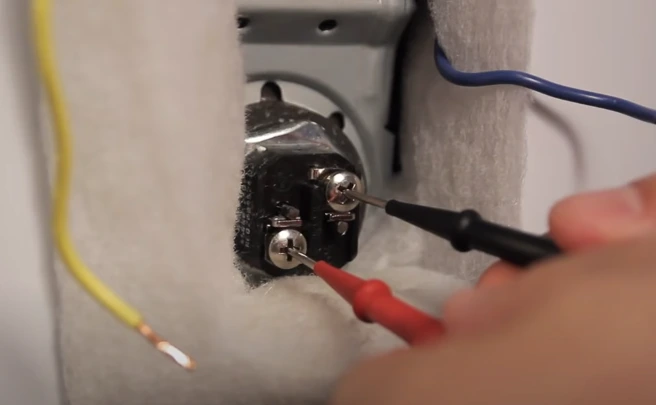
If the heating element is healthy, you can hear an audible beep. Otherwise, the element gets faulty and you need to replace it.
Do this one additional task if you hear an audible sound. Just place one probe to the screw terminal and set the other one to the tank metal casing. In this case, you shouldn’t hear a sound. Repeat the same thing to the other screw terminal.
Don’t hesitate to replace the heating element if you find the multimeter to make an audible noise.
Repeat the same test for the lower element. If you don’t know how to replace a heating element, read this article: Rheem Water Heater Element Replacement .
02. Loose Wiring
If you inspect both heating elements and they are fine, the next thing you should check is the wiring system of the heater. When there is a problem with the shorted wires somewhere in the water heater wiring system, it will trip the breaker.
Most often loose wiring is to blame if your water heater keeps tripping the breaker. In this case, the wire heats up and moves slightly when the current flows for a while. As a result, the wire touches something it shouldn’t, causes an earth fault and trips the breaker.
How To Fix:
Remove the access panel and the insulation to access the wiring of the thermostat. Visually inspect the condition of the wires. If the wiring comes loose, tighten it up. If you don’t see any sign of visual damage to the wiring, I highly suggest you hire a certified electrician to track down the issue.
03. Breaker Itself Is Bad
A breaker can also be the culprit behind this issue. Not every circuit breaker in the market is created equally. Turns out, if you install the wrong size breaker, it may draw unusual current that may cause your water heater to trip the breaker.
Ensure you use the right size and high-quality breaker for the water heater. It will always be best to get a circuit breaker that can draw the right amount of electricity.
04. Overloading the Circuit
If your Rheem Water Heater shares a circuit with other high-power appliances like a dishwasher, it could overload the circuit and cause the circuit breaker to trip.
I highly recommend you seek professional assistance when you are going to install your Rheem Electric Water Heater. Always install your water heater on a single circuit breaker. Avoid installing other powerful appliances like a dishwasher or washing machine on the same circuit.
A short circuit within the water heater or its wiring can cause the circuit breaker to trip.
Damage wiring, insulation breakdown, or defective components are responsible for a short circuit within your Rheem Water Heater.
When a short circuit occurs within your water heater, the sudden surge in electricity will trigger the safety mechanism of the circuit breaker. As a result, the circuit breaker will trip to cut off power to your water heater.
It will save both your electric water heater and the surrounding electrical infrastructure.
I suggest you contact a qualified electrician to inspect the wiring, components, and electric connections to find the source of short circuits.
Mineral buildup or corrosion on the heating element can decrease the efficiency of your water heater. For example, the heating element covered buildup can work erratically or draw too much current. As a result, the circuit breaker will trip itself to cut off power and protect the unit from unwanted damage.
How To Fix:
Flush or drain your water heater once a year to prevent the buildup from developing. To drain your Rheem Water Heater, shut off power to the unit. Then, attach a garden hose to the drain valve and place the other end to the nearest floor drain. Now, open the drain valve to let the water drain.
A faulty thermostat is another water heater problem that could throw a wrench into work. Due to a bad thermostat, the water heater will run continuously. Such a water heater operation can put excessive load on the circuit and cause it to trip.
Voltage fluctuations can negatively impact the water heater and its performance.
For example, if the water heater receives a lower or higher voltage than recommended, you will get insufficient hot water. Also, rapid changes in voltage levels can impact the stability of your water heater electric system and cause it to trip the circuit breaker.
Electrical grid issues, wiring problems, defective regulators, and overloaded circuits are responsible for voltage fluctuations. I recommend you call a certified electrician to resolve the voltage fluctuation problem.
Rheem Water Heaters offer a number of safety features. For example, an electric water heater has a high-limit switch or ECO button. The high-limit switch will trip the breaker and cut off the electric supply when the water temperature exceeds the safety level.
To resolve the issue, press the ECO or reset button to bring the unit back into working condition. You can locate the button on the upper thermostat if you have an electric model.
PS: Please, Buy Me A Coffee to support my effort. It will encourage & help us to create helpful guides that will make your life simple.
Check the heating element at first if your Rheem water heater keeps tripping the breaker. In this case, follow the steps I mentioned to inspect the elements electrically. If you find the elements are at fault, replace it and it will solve this issue.
Next, inspect the wiring system of your water heater. Ensure all the wirings are connected properly and they don’t come loose. If needed, take help from a qualified electrician.
And lastly, reset the breaker or install the right size of breaker according to your water heater manual recommendation. I hope you can solve this issue by yourself. Good luck!
Read Also :
- Rheem Water Heater Leaking
- Rheem Water Heater Blinking Light Codes

Eric Alvarez is the head of content on LilDutchUncle.Com. He is an HVAC guy based in El Paso, Texas, United States. He obtained his Bachelor of Science degree from the University Of Texas at El Paso. Years of experience in the HVAC field have taught him many lessons, not the least of which is that the value of quality and knowledge far exceeds any promised initial savings. He has a good standing reputation for superior skills in heating, air conditioning, hot water tanks, and indoor air quality systems.
Similar Posts
![hot water heater trips circuit breaker Navien E438 Error Code [Solved]](https://lildutchuncle.com/wp-content/uploads/2022/09/Navien-E438-Error-Code-768x384.webp)
Navien E438 Error Code [Solved]
Navien E438 Error Code on the front panel display indicates the recirculation pump is working abnormally. So, what you need to do in this case is- check the recirculation pump and ensure it’s operating properly. Apart from this, your Navien tankless unit can also pop up the error message due to a bad check valve…
![hot water heater trips circuit breaker Zoeller Sump Pump Maintenance [Ultimate Guide]](https://lildutchuncle.com/wp-content/uploads/2023/03/Zoeller-Sump-Pump-Maintenance-768x384.webp)
Zoeller Sump Pump Maintenance [Ultimate Guide]
This is a complete guide on Zoeller Sump Pump Maintenance. What I am going to discuss in this article: Without further ado, let’s dive in. Do Sump Pumps Need Maintenance? Yes, sump pumps need maintenance to keep it functional for years to come. If you don’t service the sump pump in time, it will go…
![hot water heater trips circuit breaker Bosch Tankless Water Heater Error Codes [Ultimate Guide]](https://lildutchuncle.com/wp-content/uploads/2023/01/Bosch-Tankless-Water-Heater-Error-Codes-768x384.webp)
Bosch Tankless Water Heater Error Codes [Ultimate Guide]
This is a complete guide on Bosch Tankless Water Heater Error Codes. In this guide, I will break down: Without further ado, let’s dive in. Bosch Tankless Water Heater Error Codes [A Complete List] From this chapter, you can learn the meaning of each error code, the reasons behind this issue, and the way you…
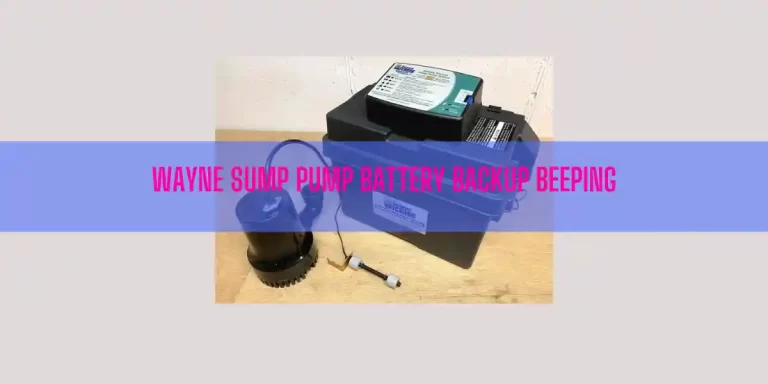
Wayne Sump Pump Battery Backup Beeping
In this article, what I am going to talk about: Why Is My Wayne Sump Pump Battery Backup Beeping? Wayne Sump Pump Battery Backup keeps beeping due to these four common reasons, including: Below, I provide solutions to resolve this issue and I hope it will come handy for you. 1. Battery May Require Attention…
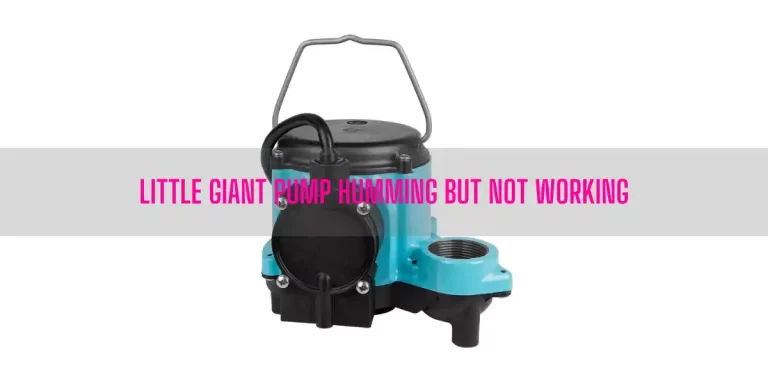
Little Giant Pump Humming But Not Working
Your Little Giant Pump humming but not working? If this is the issue you are experiencing with your sump pump, the following culprits are to blame, including: The sump pump won’t discharge though it makes a hum unless you resolve those issues. And luckily, I will take you through every troubleshooting step you need to…
![hot water heater trips circuit breaker Rheem EcoNet Water Heater Troubleshooting [7+ Problems & Solutions]](https://lildutchuncle.com/wp-content/uploads/2022/07/Rheem-Econet-Water-Heater-Troubleshooting-768x384.webp)
Rheem EcoNet Water Heater Troubleshooting [7+ Problems & Solutions]
This is a complete guide on Rheem EcoNet Water Heater Troubleshooting. In this article, I will break down common water heater problems like: So, let’s get started right here. Rheem Econet Water Heater Troubleshooting [7+ Common Problems & Solutions] This chapter will disclose the day-to-day problems and describe the solution to those water heater issues. …
Leave a Reply Cancel reply
Your email address will not be published. Required fields are marked *
Save my name, email, and website in this browser for the next time I comment.

How To Choose The Right Breaker For Your Hot Water Heater
Is your hot water heater tripping the circuit breaker in your home? A properly sized breaker that matches your water heater’s power needs is essential to prevent nuisance tripping and ensure safe operation.
If you’re short on time, here’s a quick answer to your question: Choose a breaker that matches the amperage rating on your hot water heater’s data plate, and make sure it’s compatible with the circuit wire gauge in your home . Using a breaker that’s too small can lead to tripping, while one that’s too large poses a fire hazard.
In this comprehensive guide, we’ll cover everything you need to know about choosing the right breaker for your electric or gas water heater. You’ll learn how to identify your heater’s power needs, determine the correct breaker size, and install a new breaker properly.
Identifying Your Water Heater’s Power Rating
When it comes to choosing the right breaker for your hot water heater, one of the first steps is to identify your water heater’s power rating. This is crucial in ensuring that you select a breaker that can handle the electrical load of your water heater without tripping frequently or causing any safety hazards.
Check the data plate for amperage rating
The amperage rating of your water heater can usually be found on the data plate, which is typically located on the side of the unit. The amperage rating indicates the maximum amount of electrical current that the water heater can safely handle.
It is important to choose a breaker with a rating that matches or exceeds the amperage rating of your water heater. This will prevent the breaker from being overloaded and tripping frequently.
Consider voltage and phase
In addition to the amperage rating, it is also important to consider the voltage and phase of your water heater. Most residential water heaters operate on a standard voltage of 240 volts, but it is always a good idea to check the specifications of your specific model.
Additionally, some water heaters may require a single-phase power supply, while others may require a three-phase power supply. Make sure to choose a breaker that is compatible with the voltage and phase requirements of your water heater.
Understand wattage vs amperage
While amperage is an important factor in selecting the right breaker, it is also important to understand the relationship between wattage and amperage. Wattage is a measure of the power consumption of your water heater, and it is calculated by multiplying the voltage by the amperage.
For example, a water heater with a voltage of 240 volts and an amperage of 30 amps would have a wattage of 7,200 watts (240V x 30A = 7,200W). Understanding the wattage of your water heater can help you choose a breaker that can handle the electrical load of your specific model.
Remember, it is always recommended to consult a licensed electrician or a professional in the field to ensure that you select the right breaker for your hot water heater. They will have the knowledge and expertise to guide you through the process and ensure the safety and efficiency of your water heater installation.
Choosing the Right Breaker Amperage
Match the breaker amps to water heater rating.
When choosing the right breaker for your hot water heater, it is important to match the breaker amps to the rating of your water heater. The amperage rating can usually be found on the label or nameplate of the water heater.
This rating indicates the amount of electrical current the heater requires to operate safely and efficiently. By selecting a breaker with the same amperage rating as your water heater, you can ensure that it will provide the necessary power without overloading the electrical system.
The breaker should be the same or slightly larger
While it is crucial to match the breaker amps to the water heater rating, it is generally recommended to use a breaker that is the same or slightly larger than the rated amperage. This allows for a margin of safety and ensures that the breaker can handle any temporary surges in power demand.
For instance, if your water heater has a rating of 30 amps, you can use a 30 amp breaker or a 40 amp breaker.
The importance of proper wire gauge
Another factor to consider when choosing the right breaker amperage is the proper wire gauge. The wire gauge refers to the thickness or diameter of the electrical wire that connects the breaker to the water heater.
It is crucial to use the appropriate wire gauge to ensure that the wire can safely carry the required amount of current without overheating. Using a wire gauge that is too small can lead to voltage drops and potential fire hazards.
It is recommended to consult an electrician or refer to the National Electric Code (NEC) for guidance on selecting the right wire gauge for your specific breaker and water heater combination.
Remember, safety should always be the top priority when dealing with electrical systems. If you are unsure about which breaker amperage to choose or how to properly install it, it is best to consult a qualified electrician for assistance.
They will have the expertise and knowledge to ensure that your hot water heater is powered safely and efficiently.
Types of Breakers for Water Heaters
When it comes to choosing the right breaker for your hot water heater, there are several factors to consider. Understanding the different types of breakers available can help you make an informed decision. Let’s take a closer look at the main types of breakers for water heaters.
Single pole vs double pole
One of the first decisions you’ll need to make is whether to choose a single pole or double pole breaker for your water heater. A single pole breaker controls the flow of electricity to one wire, while a double pole breaker controls the flow of electricity to two wires.
In most cases, water heaters require a double pole breaker due to their higher voltage requirement. This ensures that both the hot and neutral wires are safely disconnected when needed.
Breaker terminal types
Another important consideration is the type of terminals that the breaker has. The most common types are screw terminals and stab-in terminals. Screw terminals require a screwdriver to secure the wires, while stab-in terminals allow for a quicker installation by simply inserting the wires into the designated slots.
It’s important to choose a breaker with terminals that are compatible with the wiring in your water heater.
GFCI and AFCI breakers
For added safety, you may also want to consider installing a GFCI (Ground Fault Circuit Interrupter) or AFCI (Arc Fault Circuit Interrupter) breaker for your water heater. A GFCI breaker monitors the flow of electricity and can quickly shut off power if it detects a ground fault, helping to prevent electrical shocks.
An AFCI breaker, on the other hand, is designed to detect dangerous arcing conditions that could lead to electrical fires. Both types of breakers provide an extra layer of protection for your hot water heater.
It’s important to consult a qualified electrician or refer to the manufacturer’s guidelines when selecting the right breaker for your hot water heater. They will be able to provide you with the specific requirements and recommendations based on your water heater’s electrical needs.
Installing a New Breaker
When it comes to installing a new breaker for your hot water heater, there are a few key steps to follow. By following these steps, you can ensure a safe and efficient installation process.
Turn off power and remove old breaker
The first step in installing a new breaker is to turn off the power to your hot water heater. This can be done by flipping the breaker switch in your main electrical panel that corresponds to your hot water heater.
Once the power is off, you can safely remove the old breaker by unscrewing it from the panel and disconnecting the wires.
Connect wires to new breaker
After removing the old breaker, you can now connect the wires to the new breaker. It is important to ensure that the wires are securely connected and that there are no loose connections. You can use wire nuts to secure the wires together and electrical tape to provide additional insulation.
Mount and label new breaker
Once the wires are connected, you can mount the new breaker onto the panel. Make sure to align the breaker with the appropriate slot in the panel and secure it in place. Additionally, it is recommended to label the new breaker to indicate that it is for the hot water heater.
This will help you easily identify it in the future.
Restore power and test operation
Finally, you can restore the power to your hot water heater by flipping the breaker switch back on. Once the power is restored, you can test the operation of your hot water heater to ensure that it is functioning properly.
Allow some time for the water to heat up and check if the desired temperature is being reached.
Remember, it is always recommended to consult a licensed electrician for any electrical work, including installing a new breaker. They have the expertise and knowledge to ensure a safe and compliant installation.
Signs You Need a New Breaker
Frequent tripping.
If you notice that the breaker for your hot water heater is constantly tripping, it may be a sign that you need a new breaker. Breakers are designed to trip when there is an electrical overload or a short circuit, which helps protect your electrical system from damage.
However, if the breaker is tripping frequently, it could indicate an underlying issue with the breaker itself. It’s important to have a professional electrician assess the situation and determine if a replacement breaker is necessary.
Scorched or warm breaker
If you touch your breaker and it feels warm or you notice scorch marks on the breaker panel, it is a definite sign that you need a new breaker. Breakers should not get hot under normal operating conditions, and any signs of overheating could indicate a serious problem.
It’s crucial to address this issue promptly as it could lead to a potential fire hazard. Contact a licensed electrician to inspect the breaker and recommend a replacement.
Unusual sounds from breaker
If you hear strange noises coming from your breaker, such as buzzing, crackling, or popping sounds, it’s a clear indication that something is wrong. These sounds could be caused by loose connections, faulty wiring, or a failing breaker.
Ignoring these noises could lead to further damage or a complete electrical failure. Don’t hesitate to seek professional help to diagnose the issue and replace the breaker if necessary.
Rust, corrosion, or cracks
Inspect the breaker panel for any signs of rust, corrosion, or cracks. These issues can compromise the integrity of the breaker and increase the risk of electrical hazards. Rust and corrosion can occur due to moisture exposure, while cracks can be caused by age or physical damage.
If you notice any of these signs, it’s important to have the breaker replaced by a qualified electrician to ensure the safety of your hot water heater and your home.
Remember, when it comes to electrical work, it’s always best to consult a professional. They have the knowledge and expertise to accurately diagnose the problem and recommend the most suitable solution.
Don’t attempt to replace a breaker on your own unless you have the necessary skills and experience.
Choosing and installing the proper breaker for your hot water heater is critical to prevent nuisance tripping issues and potential hazards.
Always match the breaker amp rating to your heater’s power needs, and use an appropriately sized wire gauge. Test for proper operation once installed.
With the right size breaker connected securely, you can enjoy reliable hot water for years to come.
John Smith brings over 10 years of experience testing and reviewing all kinds of heaters for homes and businesses. He is passionate about helping people find the perfect heater to suit their needs and budget. When he’s not researching the latest heater models and technology, John enjoys DIY projects around the house, camping, and spending time with his family. As the founder and lead reviewer at HeaterAdvisor.com, John takes pride in providing readers with unbiased, comprehensive information so they can make informed decisions for their heating needs.
Similar Posts
Carbon monoxide and oil heaters: what you need to know.
Heating your home safely during the winter months is a top concern for many homeowners. If you rely on an oil heater, carbon monoxide poisoning is a real danger you need to be aware of. If you’re short on time,…
Where Is The Fuse In My Baseboard Heater?
Is your baseboard heater not turning on or blowing cold air? Before calling an HVAC technician, checking the fuse should be your first step. A blown fuse is one of the most common reasons a baseboard heater stops working properly….
How Does A Tesla Heater Work? A Detailed Explanation
Tesla’s electric vehicles are known for their innovative technology, and their climate control systems are no exception. If you’ve ever wondered how a Tesla is able to warm up the cabin without the help of a traditional combustion engine, you’re…
How To Test A Water Heater Thermostat: A Step-By-Step Guide
Having hot water available whenever you need it is something most households take for granted. But when your water heater stops working properly, you’ll quickly realize just how essential it is in your everyday life. A faulty thermostat is one…
Why Is My Car Overheating And My Heater Not Working?
Finding yourself stuck on the side of the road with steam billowing from your hood can be a scary and frustrating experience. Even more troubling – your heater doesn’t seem to be blowing hot air either. If your car is…
Water Heater Or Hot Water Heater? The Ins And Outs Of Proper Terminology
If you’ve ever stood in the plumbing aisle wondering whether to get a ‘water heater’ or a ‘hot water heater,’ you’re not alone. This terminology debate has puzzled homeowners for years, leaving many unsure which term is actually correct. The…

Tankless Water Heater Keeps Tripping Breaker – (Fixed)
It’s no fun having cold showers at freezing temperatures, and it’s even more annoying when a tripped breaker causes this experience. But why exactly would a tankless water heater trip the breaker in the first place?
Your tankless hot water heater may trip the breaker if:
- You’re using a faulty or undersized breaker
- There’s a loose connection in the tankless water heater
- You’re using an incorrect wire size
- The heating element is exposed.
This article outlines how the water heater interacts with the breaker, how it might trip the breaker, and what you can do to stop your heater from tripping the breaker in the future.

How Do Breakers Work & Why Are They Important?
Circuit breakers will shut off the tankless water unit when there’s a current overload. It saves you from electrical fire hazards and spending money on a new tankless unit.
The 1-inch wide 120-volt or 2-inch wide 240-volt circuit breaker is standard in most water heaters. You’ll also find these types of circuit breakers in a host of other household appliances.
More Reasons Why Your Tankless Water Heater Keeps Tripping Breakers
Shorted circuit.
A short circuit in the water heater is the most logical cause for a tripping breaker. Short circuits happen when there’s a loose connection in the tankless water heater. Wires connecting the circuit breaker to the unit are prone to short circuits.
Identifying the faulty wire is often tricky as a DIYer since you may not see signs of wear or damage. You’ll see a few burnt wires if you’re lucky, but this is not a foolproof method. If you can’t find the shorted wire yourself, contact a licensed repairer to inspect it.
Faulty Circuit Breaker
This is often the first suspect for most DIYers. Smaller amp circuit breakers can cause overload in the tankless water heater unit. For example, a 4,800-watt unit on a 240-volt line will need a 20-amp circuit breaker. So an 18-amp breaker will continually cause your unit to trip.
It’s better to get a higher amp than the minimum, as this helps your unit handle any electrical strain and last longer. Furthermore, breakers lose their efficiency with prolonged use.
The Consumer Product Safety Commission (CPSC) reports a lifespan of at least 30 to 40 years for most circuit breakers. You can use a multimeter to test if the breaker is still functional.

How Do I Fix or Troubleshoot a Tripping Breaker?
Breakers for water heaters don’t come cheap. This means your wallet will take a hit every time the circuit breaker blows. Consider the solutions below for fixing a breaker that keeps tripping:
What Do I Need to Fix a Tripping Breaker?
Most of the necessary materials are in your toolbox. You’ll need:
- A flashlight to view and fish out bad electrical wires within the unit
- A multimeter to test the resistivity of the circuit breaker
- The user manual to identify components.
To troubleshoot the breaker, continue with the following steps:
Step 1: Check nearby appliances
Sometimes, it’s not the water heater unit. Other appliances may also contribute to this problem if they’re connected to the same circuit breaker.
Look at the water heater circuit breaker and trace all wires to see if another appliance is contributing to the load. Is there any appliance overloading the circuit breaker? Remove it and reset the unit to see if it’s functioning normally.
Step 2: Check the thermostat
If you are here, it means no appliance is overloading the breaker. So move on to your thermostat.
It’s often easy to detect a faulty thermostat in tankless heaters. Since thermostats are temperature regulators, a faulty one will overheat the tankless water heater, and the safety device will switch off the unit when the water gets too hot.
Want to know if the water heater thermostat is the culprit? Use a multimeter to test the resistance level. A functional thermostat will have a reading of less than 1. However, a bad thermostat will have a reading of 1.
Step 3: Check the heating element
Heating elements could be responsible for tripping circuit breakers. Over time, the casing around the element may start to peel off, exposing the internal electrical components to water. As a result, the element will short-circuit and cause the breaker to trip.
The water heater will trip off if the element has a problem. Use a multimeter to verify if the element is faulty and call up a licensed repairer to replace the defective component.
- Related Post: How to Convert Gas Water Heater to Electric
How to Replace a Circuit Breaker in Tankless Water Heaters
Switch off all circuit breakers before pulling the main switch to avoid sparking and damage. Then:
- Get a flat-tip screwdriver, needle-nosed pliers, and an electrical tester.
- Find the main circuit breaker in your home. You’ll see the numbers 60, 150, or 200 printed on it. Label these breakers before you proceed.
- Identify the faulty breaker and purchase a new one at the local hardware store. Make sure the amp of the new breaker is more than the required minimum.
- Pull out the main meter. The meter has four prongs that fit tightly into the meter box. You may need to apply a bit of force to pull it out, but there are no screws to hold it in place. Pulling it out will shut off all electric appliances in your house. If there’s no main meter, call your electricity company.
- Replace the bad breaker with a new one.
- Return the meter to the meter box.
Note : The meter box contains live electricity. Do not put your screwdriver or hand into it. Wear rubber soles or stand on a dry wooden board when pulling out the meter.
- Related Post: Rheem Water Heater’s Blue Light Flashing – Fixed
Now, you understand the common reasons for why your tankless water heater might keep tripping breakers. Take precautions during this process and call a licensed repairer to handle more technical tasks. As a DIYer, it’s alright to ask for help from trained or professional repairers.
Related Posts:

Privacy Policy
334-328-3570
Auburn-opelika, 334-246-4914, columbus, ga, 762-354-0045.

- Electrical , Home Maintenance , Plumbing , Safety
Why Is My Electric Water Heater Tripping My Circuit Breaker?
- August 2, 2019
The old saying is electricity and water don’t mix, but sometimes they have to. Case in point: An electric water heater . Electricity is used to heat the elements inside the tank which in turn heat the water for use in your Auburn or Montgomery, AL home. Sometimes Dixie Electric, Plumbing & Air hears from clients who say the circuit breaker for their water heater is tripping repeatedly and they want to know what’s going on.
What NOT to do
Turn the breaker back on repeatedly:.
The circuit breaker is a big part of electricity and water safety . Turning it back on, without locating the problem, can cause wires to overheat and perhaps start a fire. It can also cause the breaker to fail.
Install a breaker with a higher amperage rating:
This is extremely dangerous. A higher amperage means you must upgrade to heavier wiring to carry the extra load. If you don’t, you are creating a huge fire risk.
Common Causes
So, what causes a circuit breaker to trip on a water heater? There are always exceptions, but we feel you can break it down into three common causes:
- A burned-out heating element— Most water heaters have two elements. When one or both burn out the result is little or no hot water. Occasionally, when the elements fail, they can split. The result is the electrical components are exposed to the water in the tank causing a short-circuit.
- Faulty thermostat— We mentioned most tanks have two elements. Each is controlled by its own thermostat. They make sure only one element is heating at any given time. If a thermostat fails both, elements can be turned on at the same time. The increased amperage draw causes the circuit breaker to trip.
- Bad breaker or wiring— If a plumber has checked out the water heater and can’t find a problem it may be time to call in an electrician . Circuit breakers can wear out, causing them to trip for no reason. A loose connection in the electrical panel can also cause a short circuit.
Call Dixie, and It’s Done
Luckily for you, no matter where the fault lies, it takes just one phone call. Our name says it all, Dixie Electric, Plumbing & Air. We have licensed plumbers and electricians on staff and waiting to serve you, just as we have been for more than 110 years. Be sure to like and follow us on Facebook and Twitter for more great information like this.
Recent Posts
Essential spring hvac maintenance tips for your hvac.

Why Does My Circuit Breaker Keep Tripping?

7 Signs You Need an AC Repair

6 Causes of Low Water Pressure and How to Fix It

3 Benefits of Regularly Replacing Your Air Filter

Do I Need A Licensed Electrician?
Auburn-Opelika | 334-246-4914 2901 Society Hill Rd Opelika, AL 36804
Columbus, GA | 762-354-0045 3155 Williams Rd, Suite C1 Columbus, GA 31909
- Construction Solutions
- Commercial & Industrial Solutions
- Residential Solutions
- Privacy Policy
- Terms & Conditions
- ©2024 Dixie Electric, Plumbing & Air. AL #15033 | GA #EN218267

- Special Offers
- CALL -1800 633 920
- Why Is My Hot Water System Tripping The Safety Switch?
- Hot water systems
- Senior Citizen Discount
- No Call Out Fee
- Same Day Plumbing
- 24/7 Fast & Reliable
Is Your Hot Water Heater Safety Switch Tripping Often?
Before you attempt to fix or replace the safety switch on a hot water system yourself, you should consider hiring a professional hot water installer/repairer .
It’s possible the issue is bigger than just a bad switch or faulty wiring and that you may actually need to replace your hot water heater.
Whether that is the case or not, when there is electricity and plumbing involved, it’s always best to get a professional to investigate and fix the issue.
Call the Hot Water experts on 1800 633 920 or send us a message and we’ll send someone over quickly to help with your electric hot water temperature issue!
Is Your Water Heater Tripping Its Reset Button?
Here are some likely causes of why that is happening
Controls For Your Hot Water Heater
If you already know about your water heater’s thermostat control , you probably are already aware that 48-50 degrees ( Celcius ) is recommended as the ideal setting.
This temperature is thought of as a sweet spot since it’s both hot enough to kill bacteria and moderate enough not to cause any serious burns.
However there are several kinds of problems that could cause your water heater to overheat, and whenever this happens the emergency cut-off, or ECO, is engaged in order to turn off the heater entirely.
In order to reset the heater you will want to push the red button of the ECO, usually found on the upper part of the thermostat.
Sometimes, however, the water heater will start to trip the ECO repeatedly, and in this case you will need to contact a plumber.
There is a fairly high chance that the tank water in this situation will be dangerously hot, and because this problem most likely comes from a faulty component, things won’t get any better until this faulty part is discovered and removed.
Here Is A Quick Overview Of The Most Probable Causes For A Water Heater Tripping The Safety Circuits :
The thermostat is faulty.
Or maybe even both of them are (water heaters have two thermostats, one at the top of the tank and one at the bottom). Each of these thermostats controls a heating element that heats up the water.
Once the water reaches the ideal temperature, it’s the thermostat’s job to turn off the heating element.
But if either or both of the thermostats go faulty and cease doing their job then the heating element begins heating the water well above the ideal and safe level.
Your Heating Element Is Faulty
Heating elements can also turn faulty over time. In most cases, however, they will just stop heating once they go bad.
But in some cases, a heating element can, due to an electrical short, continue to receive power and continue heating despite the fact that the thermostat has attempted to shut it off.
This problem will bring about the same result: dangerously hot water and repeated tripping of the ECO.
Your ECO Is Faulty
The ECO itself could be the culprit. Either through wear and tear or through repeated cases of overheating, or even a totally spontaneous failure.
You will need to replace a fried ECO switch, but the good news is that a fried switch alone is not enough to overheat your water.
If your ECO is tripping but your thermostat, heating element, and ECO are all still in working order, then it could be that some loose wiring is producing a separate heat source from within your water heater.
On top of overheating your water, this particular problem carries the additional risk of fire or electrical shock. Certainly one should allow trained professionals to figure out if your water heater is malfunctioning because of wiring problems.
No matter what the cause proves to be, repeated tripping of the ECO of your hot water system is something that requires immediate attention.
If you are currently dealing with this problem in Sydney , please reach out to a professional in order to remedy the situation as quickly as possible.

- CALL – 1800 633 920
- ANYTIME HOT WATER (Lic C/A 75021c)
- 1st At “dux Solar Institute”
- Vip – Rheem Installer, Repairs, Sales
- Vip – Dux Installer, Repairs, Sales
- Vip – Rinnai Installer, Repairs, Sales
- Shipping Policy
- Return Policy
- Privacy Policy

- HOT WATER REPAIRS
- HOT WATER SYSTEM REPLACEMENT
- HOT WATER INSTALLATION
- ELECTRIC HOT WATER SYSTEM
- INSTANT ELECTRIC HOT WATER SYSTEM
- GAS HOT WATER SYSTEM
- SOLAR HOT WATER SYSTEMS
- HEAT PUMP HOT WATER SYSTEMS
- EMERGENCY HOT WATER REPAIR
- STIEBEL ELTRON
- WILSON / HOCKING
- EASTERN SUBURBS
- HILLS DISTRICT
- NORTH SHORE
- NORTHERN BEACHES
- SUTHERLAND SHIRE
- WESTERN SUBURBS
- SOUTH WEST SYDNEY
- WESTERN SYDNEY
- CENTRAL COAST
CALL NOW 1800 633 920
BOOK ONLINE & SAVE $25
Four killed, 10 injured at Moscow mall after hot water pipe bursts
- Medium Text

Sign up here.
Reporting by Reuters; writing by Caleb Davis; editing by Mark Trevelyan, Jason Neely and Ron Popeski
Our Standards: The Thomson Reuters Trust Principles. New Tab , opens new tab

World Chevron

What polling can (and can't) tell you
On Nov. 5, election officials across America will count more than 150 million ballots to answer a burning political question: Who will be president of the United States? Until then, the best signals we can get will mostly come from public opinion polls, which will be the fuel of endless debate on who has the lead, Democrat Joe Biden or Republican Donald Trump. But what do polls really tell us? Lik

The U.S. military said on Sunday it had engaged five unmanned drones over the Red Sea that "presented an imminent threat to U.S., coalition, and merchant vessels in the region."

- Bahasa Indonesia
- Slovenščina
- Science & Tech
- Russian Kitchen
How are Russian homes heated?
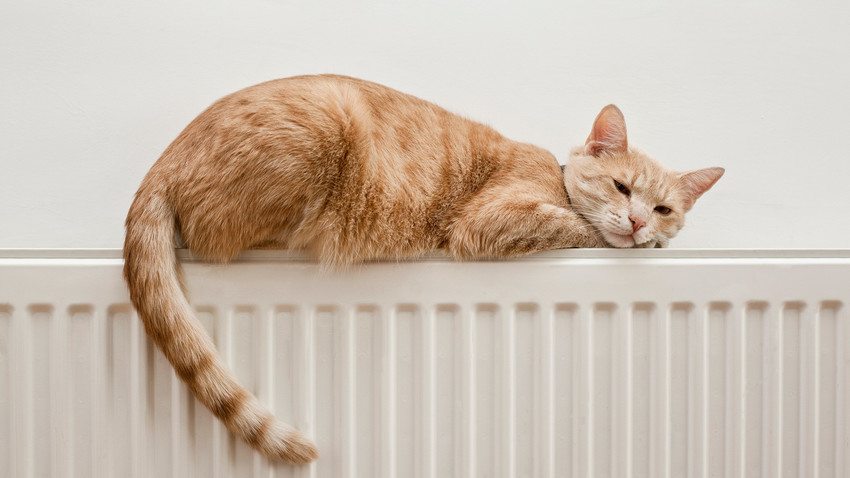
Every autumn, Russian social media users spontaneously spring into action and everyone, without prior arrangement, starts exchanging photos of cats lying on radiators. The image is so popular that, for example in Perm and Saratov, they’ve even erected monuments to cats on radiators.
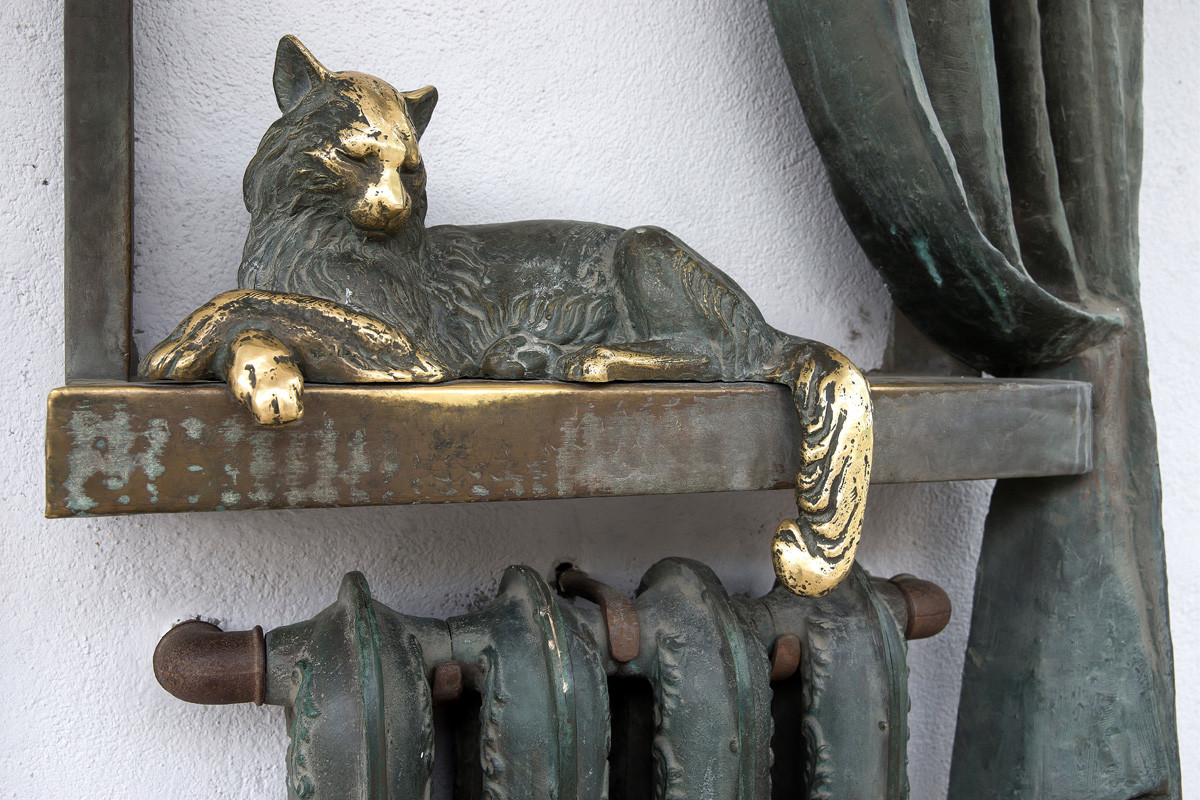
A monument to a radiator in Samara.
In posting such pictures, millions of Russians are trying to summon the heat to their flats. You may wonder why they go to such lengths, instead of simply turning on the heating? Well, in Russia, it’s not that easy! Heating system is handled very differently from what you are probably used to.
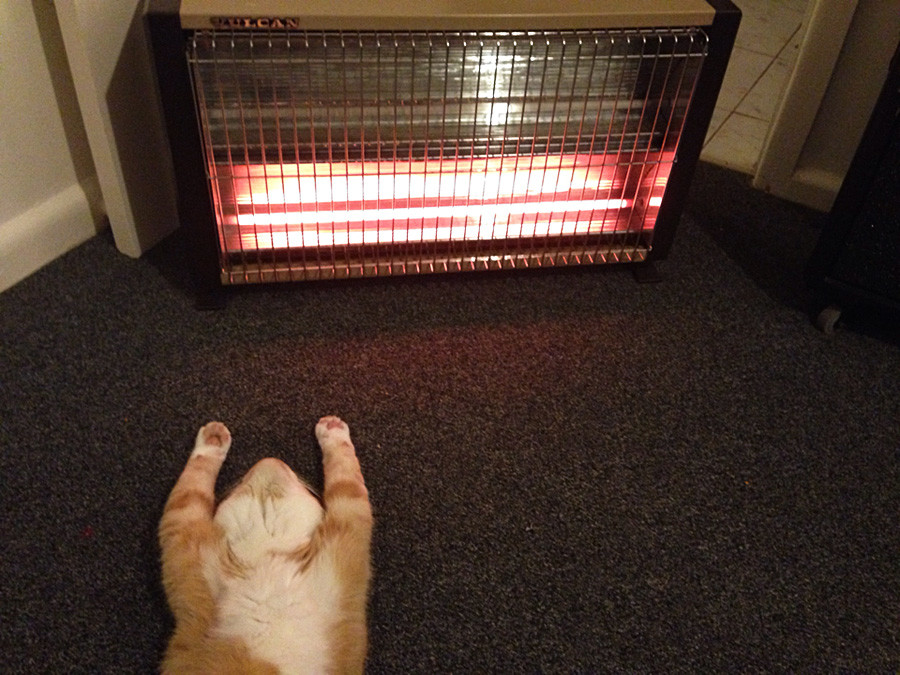
Universal warmth for all
In Russian cities, most buildings are centrally heated by hot water flowing through pipes. The water temperature is the responsibility of a local boiler station or heat-and-power plant - one per neighborhood or district. It supplies heat to cast-iron radiators (or increasingly in newly installed modern aluminum radiators) in flats when the average daily temperature outside stays below eight degrees Celsius for five days in a row.
As a rule, the heating season in the European part of Russia lasts from October until May, but it often happens that cold weather spells arrive sooner, when the heating has not yet been turned on. For instance, the Urals and Volga region already had snow in September 2019.
And in Moscow, the temperature plummeted to +5 in mid-September, and many residents are still waiting for their radiators in their flats to become warm. Yulia Petushkova lives in the Belyayevo district in the west of the city and she also has to patiently wait. "It's cold at work, it's cold outside and it's cold at home. From one cold place, I have to go to another cold place, through another cold place. They turned on the heating on on September 25, but it is still cold at home, although I can now sleep with two duvets rather than three!"
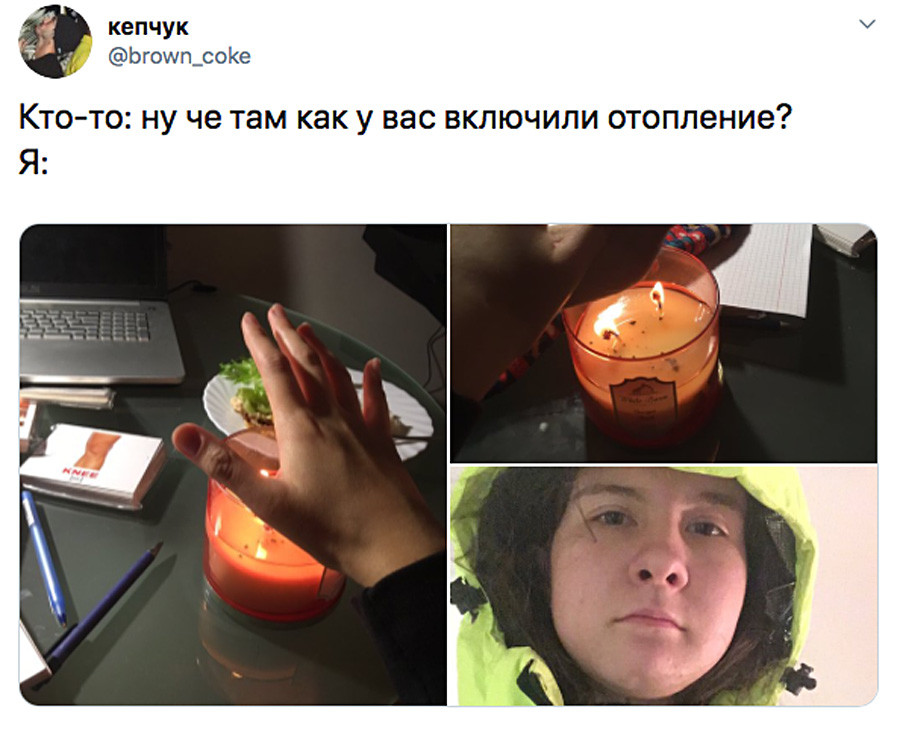
"Well, what’s the latest, have they turned on the heating yet?"
But Daria Sokolova from Tsaritsyno in southern Moscow was not so fortunate: In her building, the heating was officially turned on on September 24, but not in all flats. "The water has not reached my flat through the distribution pipe, it is very disappointing, since they did promise to turn the heating on," she laments.
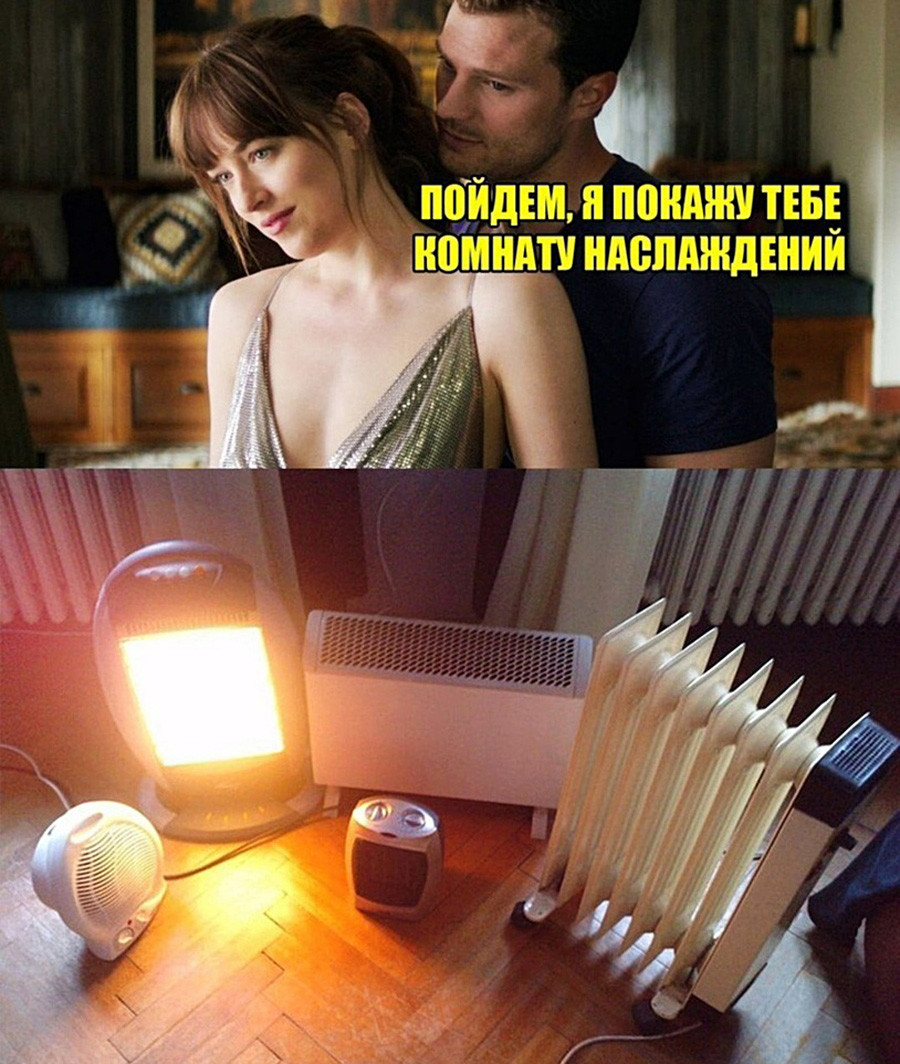
"Come, I'll show you my room of luxury"
Comrades, open the window!
But that’s just one side of the story. As you know, the temperature in Russia can change suddenly and yesterday's frost may be followed by a sudden warm spell. But your home will remain HOT, because the authorities have already turned on the heating. The water temperature in the radiators is regulated centrally at boiler plants and you can't turn it up or down independently.
And when they do start supplying heating to Russian homes, they do it wholeheartedly. In major cities, for example, the water temperature is calculated automatically depending on the weather. And at small boiler plants it is done manually. In any case, during the heating season, according to the state norm, the temperature in an apartment should not fall below 18 degrees Celsius and in the bathroom it should be no less than 25 degrees. For living rooms the upper temperature limit is 24 degrees.

"That feeling when your house is the first in line to have the heating turned on"
Therefore, many people in Russia during winter wear T-shirts at home and leave the windows open. This, of course, has its advantages, because there will always be fresh frosty air in the flat. Nevertheless, there are buildings in Russia with autonomous heating systems, and not just in the private sector. Some new residential complexes have their own boiler-rooms that provide heating much quicker and where the temperature can be adjusted.
How much do Russians pay for heating?
It would be logical to assume that Russians only pay for their heating in winter, but no.
They usually pay an average price for heating over a year on a monthly basis, otherwise winter payments could and would be in the thousands of rubles. Nevertheless, local authorities often decide themselves if residents should pay for the heating only when its on or spread the payments over the calendar year. For instance, in winter residents of chilly Kamchatka pay 7,000 rubles ($100) a month for heating their flat but in North Ossetia in the south of the country only 3,000 rubles ($40).
Whose brainchild was this excessive heat??
Hot water radiators were first invented in Russia - moreover, back in the mid-19th century. The invention belongs to industrialist with Prussian roots, Franz San Galli. Radiators manufactured at his factory in St. Petersburg were exported around the world.
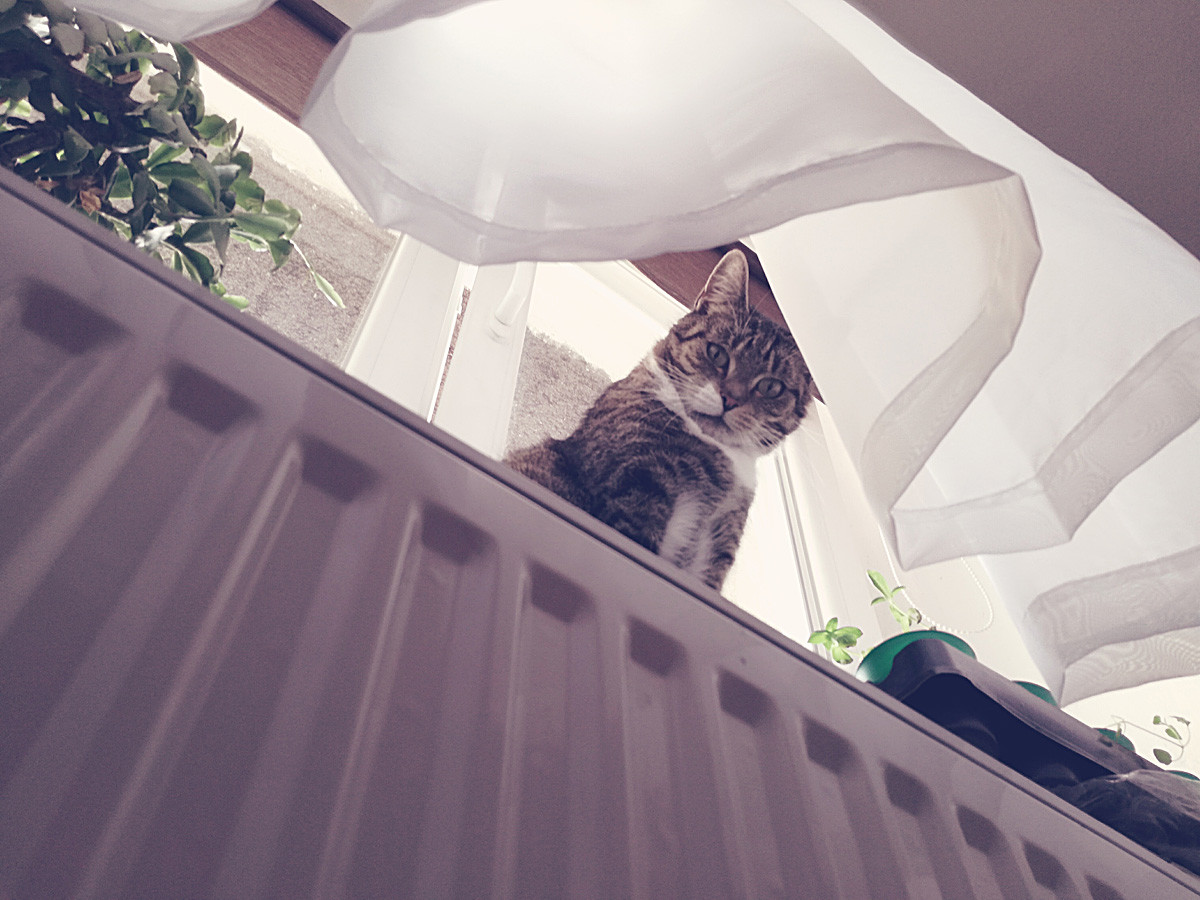
Although most houses were heated with wood-burning stoves, by 1917, major Russian cities had buildings that used a hot water heating system. Centralized heating and electricity only came to people's homes in the Soviet period, in 1924, and, when Khrushchev-era apartment blocks started being built en masse in residential districts in the 1960s, people in Russia practically forgot what it felt like to be cold in the winter.
By the way, in the 1980s, Soviet engineers thought about heating houses using atomic energy, but in the wake of the Chernobyl disaster such projects were stopped. Nowadays, Russian boiler plants use gas for fuel.
If using any of Russia Beyond's content, partly or in full, always provide an active hyperlink to the original material.
to our newsletter!
Get the week's best stories straight to your inbox
- 10 replicas of world-famous landmarks you didn’t expect to find in Russia
- You’ll be surprised! 12 remote wooden airports still in operation in Russia
- How Russians live in cities built on permafrost (PHOTOS)
This website uses cookies. Click here to find out more.

COMMENTS
For the most part, the water heater components prevent water from entering the electrical system. Sometimes, a gasket can fail and open the possibility of water reaching the electrical system and tripping the breaker. This is a very dangerous scenario that could lead to serious electrical shock or fire.
Step 1: Look at the Other Appliances. First, you need to take a look at the circuit breaker and see what other appliances are on the same circuit as your water heater. There should almost never be anything other than the water heater alone on a dedicated two pole circuit. If the water heater is sharing a network with any other appliances, it ...
Common Causes of Water Heater Tripping Breaker. When it comes to a water heater tripping the breaker, there are several common causes that could be the culprit. By understanding these causes, you can troubleshoot and resolve the issue to prevent future disruptions to your hot water supply. 1. Electrical Overload
Circuit overload. A water heater superposes be on a dedicated circuit. If the water heater is sharing the same circuit with other devices, it may result in circuit overload and thus trip the breaker. Burnt-out heating element. Damaged heating elements are one of the major reasons your water heater trips a breaker.
1. Burnt-Out Heating Element. A burnt-out heating element can lead your circuit breaker to trip because the compromised heating element either increases how much power the water heater consumes—leading to a tripped breaker—or exposes the heating element to moisture, also tripping the breaker. If your heating element is burnt out, then you ...
Let's look deeper at what's causing your water heater to trip the breaker: 1. Electrical Overload. Electrical overload occurs when the electricity demand exceeds the capacity of the electrical circuit. It can happen if multiple high-powered appliances are running simultaneously.
The problem may not actually be with the water heater. It could be that: The breaker itself is worn out and tripping needlessly. A wire is loose in the electrical panel, which is causing a short circuit. If a plumber has checked out your water heater and everything seems to be working fine, you should have an electrician check the electrical ...
Luckily, the thermostat guards against this, keeping your water at a safe temperature, and limiting the amount of electricity used too. However, a broken thermostat can lead to your circuit breaker tripping, and worse. Your electric water heater likely actually has two thermostats if it has two heating elements.
A short circuit is one of the most common causes of a hot water heater circuit breaker tripping. When a short circuit occurs, it means that there is a direct connection between the hot wire and the neutral wire, bypassing the resistance of the appliance. This creates a surge of electrical current, which exceeds the capacity of the circuit ...
The excessive power can be too much for the circuit to handle, causing it to trip. Sometimes the element that heats the water in the heater can be the source of the issue. If the heating element breaks or burns out, this can cause a spit in parts of the heater, exposing wires and electrical components to direct contact with water.
How to fix an electric water heater that trips the circuit breaker or blows fuses, little or no hot water. A DIY plumbing water heater step by step highly co...
Overloaded Circuit. One of the most common reasons for a water heater tripping the breaker is an overloaded circuit. When too many appliances or devices are connected to the same circuit as the water heater, it can draw excessive current, causing the breaker to trip.To resolve this issue, check the circuit breaker panel and identify which appliances are sharing the circuit with the water heater.
Check the circuit breaker. The most common problem if your water heater isn't putting out any hot water at all is the breaker. If there's a power surge, the circuit breaker that controls the ...
Eric Alvarez. If your Rheem water heater is tripping the breaker, it could be due to various potential issues. Firstly, check for any electrical problems like a short circuit or faulty wiring. Ensure that the heater is not overloading the circuit. Moreover, examine the heating element for any damage, as a faulty element can cause electrical ...
When the hot water heater continuously trips a circuit breaker in your home, it's a sign that there's a potentially dangerous problem that needs immediate attention. Simply turning the breaker back on will not solve the problem and might make it worse. Troubleshoot the breaker instead to find out the exact reason for it tripping.
Electric water heater keeps tripping the breaker. It will stay on for 30 minutes or so and then the breaker will trip. Here's why!Kobalt 1.5 inch socket for ...
A single pole breaker controls the flow of electricity to one wire, while a double pole breaker controls the flow of electricity to two wires. In most cases, water heaters require a double pole breaker due to their higher voltage requirement. This ensures that both the hot and neutral wires are safely disconnected when needed.
Step 3: Check the heating element. Heating elements could be responsible for tripping circuit breakers. Over time, the casing around the element may start to peel off, exposing the internal electrical components to water. As a result, the element will short-circuit and cause the breaker to trip.
The increased amperage draw causes the circuit breaker to trip. Bad breaker or wiring—If a plumber has checked out the water heater and can't find a problem it may be time to call in an electrician. Circuit breakers can wear out, causing them to trip for no reason. A loose connection in the electrical panel can also cause a short circuit.
It's ...
(GSBR as distributed by MLS GRID) For Sale: 3 beds, 1.5 baths ∙ 1988 sq. ft. ∙ 925 Apple Tree Rd. Rd, Moscow, PA 18444 ∙ $465,000 ∙ MLS# SC2198 ∙ Harmony Hills! This beautiful home has been loved and well taken care of and is ready...
The heat carrier (water) is sent to pump stations (PS) through pipes. Their task is to generate hydraulic pressure. The hot water pressure from the central heating stations is very high, so it must be reduced for the supply stations at the buildings. Also, the distance to these stations can be lengthy, and the pressure in the pipes can change.
By Reuters. July 22, 20232:01 PM PDTUpdated 9 months ago. MOSCOW, July 22 (Reuters) - Four people were killed and 10 injured on Saturday after a hot water pipe burst at a shopping mall in western ...
In Russian cities, most buildings are centrally heated by hot water flowing through pipes. The water temperature is the responsibility of a local boiler station or heat-and-power plant - one per ...